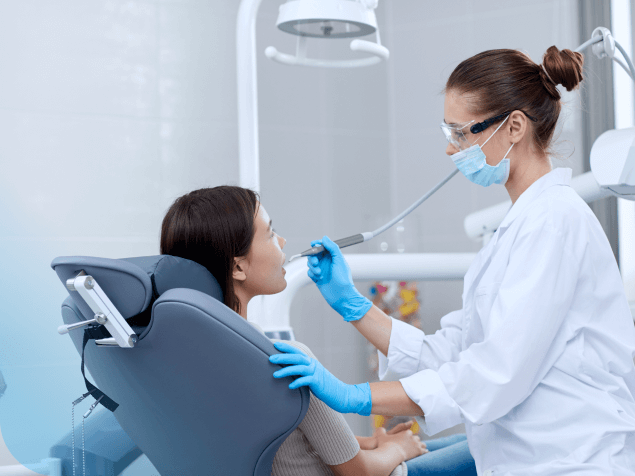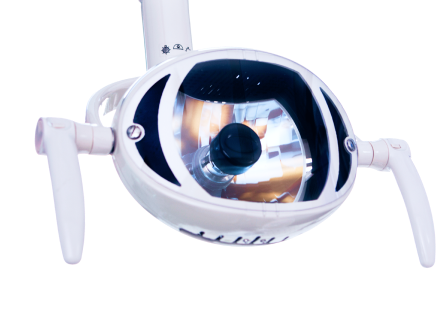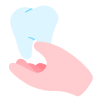Services
Each service is usually listed separately with a brief description of what it entails. This may include specific features, benefits, or unique selling points of each service.
Our services
Our Quality Dental Services

Crocked Teeth
Crooked teeth can result from various factors, including genetics, jaw development, or habits like thumb-sucking.

Denture
Custom-fitted for comfort, dentures enhance smiles, support facial structure, and enable individuals to eat, speak, and smile with confidence
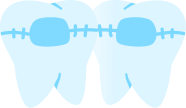
Root Canal
A precise dental procedure to treat infected tooth pulp. By removing the damaged tissue, we restore comfort and preserve your natural tooth, ensuring a healthier, pain-free smile.
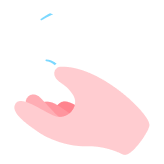
Yellow Teeth
Commonly caused by staining from food, drinks, or tobacco. Our teeth-whitening solutions restore a brighter, confident smile, enhancing your overall appearance and self-assurance

Scalling and Polishing
Essential dental hygiene procedures to remove plaque and tartar, promoting gum health and preventing decay. Achieve a fresh, clean smile with our expert care and professional polishing techniques.

Worn Teeth
Resulting from grinding, aging, or habits, worn enamel can impact aesthetics and function. Our tailored solutions restore and protect, ensuring a confident smile and optimal oral health.
Services details
Our Dental Care Services
Our dental services cover a wide spectrum, from preventive care and routine check-ups to advanced treatments, ensuring a holistic approach to your oral health.You can trust our skilled and compassionate team of dental professionals dedicated to providing personalized care, utilizing the latest techniques and technologies in the field.
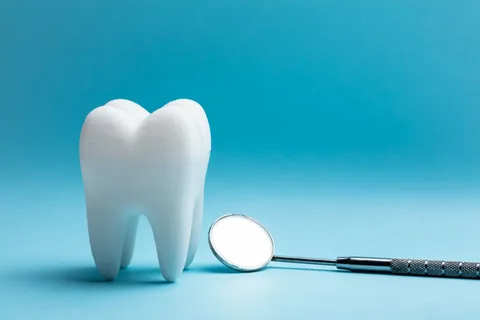
- Dental Fillings
- Crooked Teeth
- Denture
- TMJ
- Tooth Extraction
- Sedation
- Root Canal
- Missing Teeth
- Worn Teeth
- Oral Cancer Symptoms
- Scaling and Polishing
- Wisdom Teeth Extraction
- Custom Made Mouthguards
- Re - Root Canal
- Night Grinding
- Implant and Aesthetics
- Invisible Braces
- Dental Braces
- Zirconium Crown
- Gum Depigmentation
- Kids Dentistry
- Gold Dental Crown
TREATMENTS
Dental Fillings Treatment in Lahore
Dental Fillings
Dental fillings are restorative materials used to repair and restore teeth damaged by decay or minor fractures. Typically made of materials like amalgam, composite resin, or porcelain, fillings are placed after the removal of decayed or damaged tooth material. The procedure involves cleaning the affected area, shaping the cavity, and applying the chosen filling material to restore the tooth’s structure and function
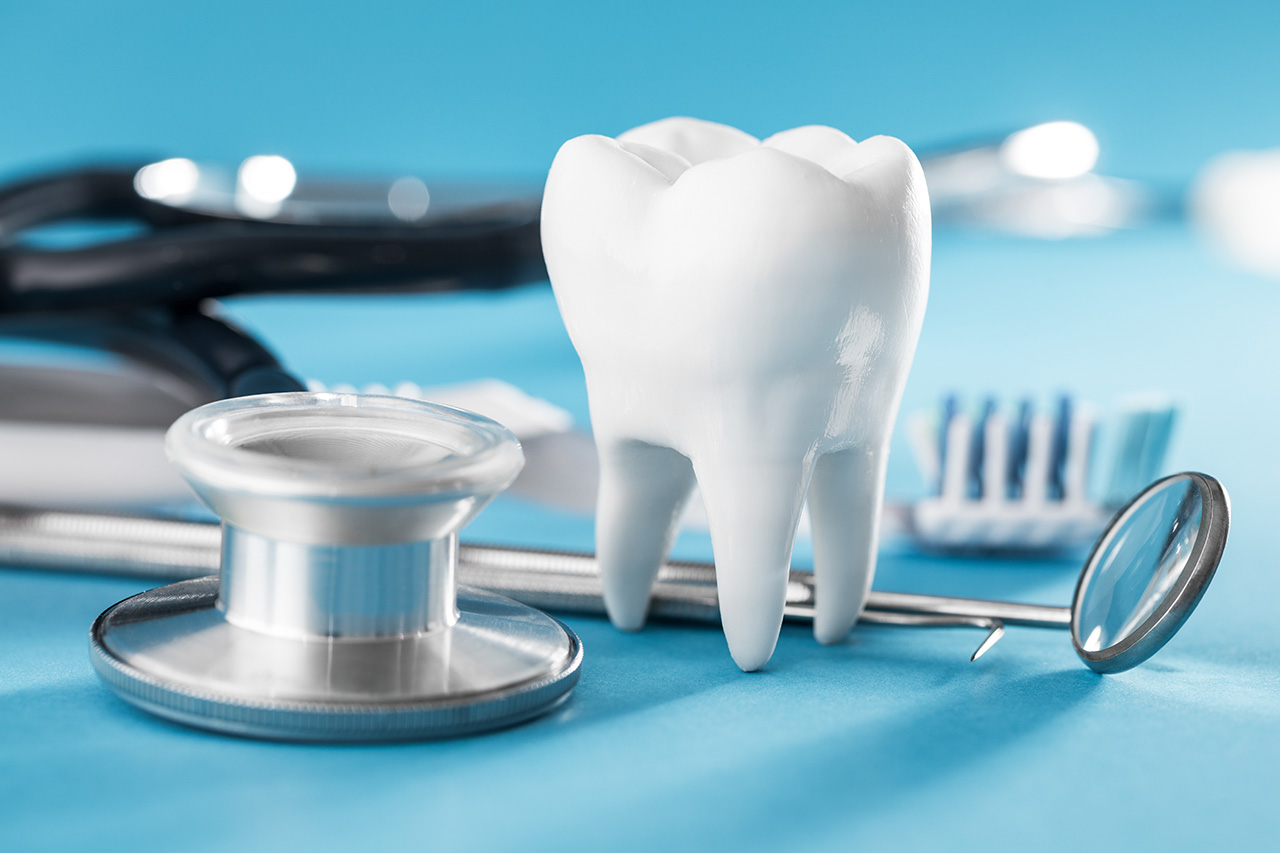
- Functional Impairment
- Aesthetic Concerns
- Speech Difficulties
- Preventing Tooth Migration
- Preserving Bone Health
- Improving Oral Health
- List Item #1
- List Item #2
- List Item #3
Types of Dental Fillings
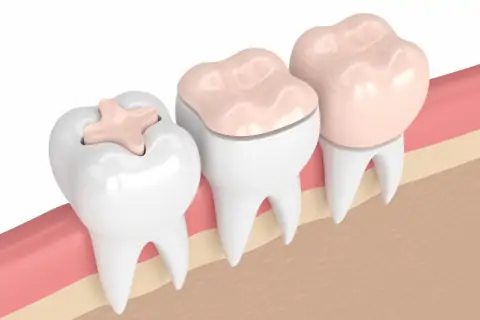
Amalgam Fillings
These are made from a mixture of metals, including silver, tin, copper, and mercury. Amalgam has been used for decades and is known for its durability.
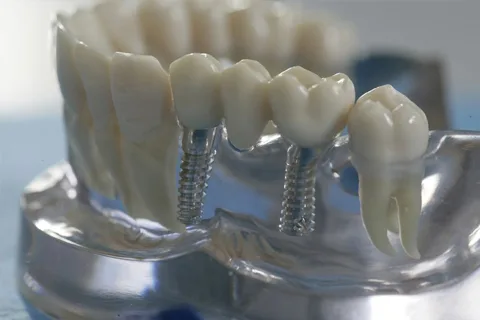
Composite Fillings
These are tooth-colored fillings made from a mixture of plastic resin and fine glass particles. They are aesthetically pleasing and blend seamlessly with natural teeth.
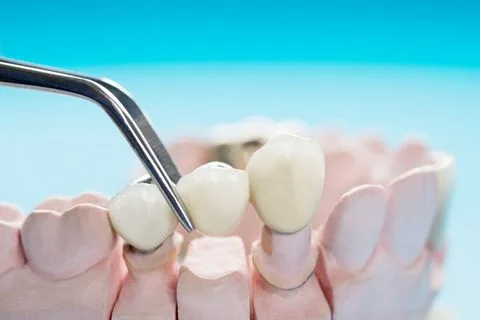
Anterior Tooth Loss
Anterior teeth refer to the front teeth, including incisors and canines. Missing anterior teeth can impact aesthetics significantly, and replacement options often prioritize cosmetic considerations.
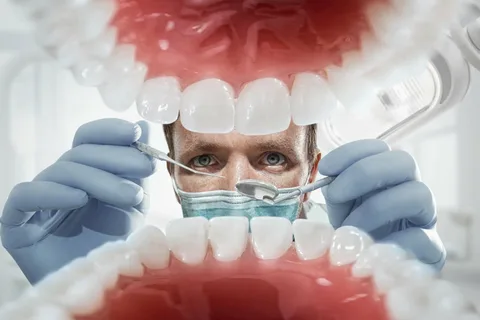
Posterior Tooth Loss
Posterior teeth include premolars and molars, located toward the back of the mouth. Missing posterior teeth can affect chewing efficiency, and replacement options focus on restoring functional aspects.
CAUSES OF DENTAL FILLINGS
Causes of missing teeth involves preventive measures, early intervention, and timely dental treatment. Regular dental check-ups, good oral hygiene practices, and prompt treatment of dental issues are essential in preventing tooth loss. Untreated cavities can lead to severe tooth decay, eventually requiring extraction if the damage is extensive. Advanced stages of gum disease, such as periodontitis, can lead to tooth loss as the supporting structures of the teeth are compromised.
Dietary Factors
Consuming sugary and acidic foods and drinks contributes to the growth of bacteria that produce acids, accelerating the decay process.
Poor Oral Hygiene
Inadequate brushing and flossing allow the accumulation of plaque, a sticky film of bacteria, which can lead to the demineralization of tooth enamel and the formation of cavities
Dry Mouth
Reduced saliva production, often caused by certain medications or medical conditions, can lead to a more acidic environment in the mouth, promoting tooth decay.
Existing Dental Work
Areas around existing dental restorations, such as old fillings or crowns, may be prone to decay if not adequately maintained.
Dental Fillings
Symptoms of Dental Fillings
- Tooth Sensitivity
- Pain or Discomfort
- Allergic Reactions
- Filling Damage or Wear
- Inflammation or Infection
- Discoloration or Staining
How To Take Care Missing Teeth
Taking care of your oral health, especially when you have missing teeth, is important to prevent complications and maintain overall well-being. Here are some tips on how to care for missing teeth:
Floss Regularly: Floss between your remaining natural teeth and around dental appliances to remove plaque and prevent gum disease. If you have dental bridges or implants, use floss threaders or interdental brushes for effective cleaning.
Use an Antiseptic Mouthwash: Rinse your mouth with an antiseptic or fluoride mouthwash to help control bacteria and maintain oral hygiene. Consult your dentist for recommendations based on your specific needs.
Visit Your Dentist Regularly: Schedule regular dental check-ups, even if you have missing teeth. Your dentist can monitor the health of your remaining teeth, assess your gum health, and address any concerns promptly.
Consider Dental Appliances If you have missing teeth, your dentist may recommend dental appliances such as bridges, dentures, or implants to restore function and aesthetics. Follow your dentist’s instructions for care and maintenance of these appliances.
FAQs
Dental fillings are materials used to repair and restore teeth damaged by decay, fractures, or other issues, helping to restore their function and appearance.
Decay is diagnosed through dental examinations and X-rays. Dental fillings involve removing the decayed portion of the tooth and filling the cavity with a restorative material.
The lifespan of dental fillings varies, but they typically last 5 to 15 years. Regular dental check-ups help monitor their condition and address any issues.
Yes, dental fillings can be replaced if they become worn, damaged, or show signs of deterioration. Regular dental visits aid in monitoring their condition.
The visibility depends on the filling material. Tooth-colored fillings (composite resin) blend with natural teeth, while amalgam fillings (silver) may be more noticeable.
It's common to experience temporary sensitivity after a filling, but it typically resolves. If persistent, it's essential to inform your dentist.
TREATMENTS
Crooked Teeth Treatment in Lahore
Crooked Teeth
Crooked teeth can affect not only the appearance of the smile but also oral health. They may contribute to difficulties in cleaning the teeth properly, leading to an increased risk of tooth decay and gum disease. Additionally, misaligned teeth can impact bite alignment, potentially causing issues like jaw pain or difficulty chewing.Orthodontic treatment is often recommended to correct crooked teeth.

- Functional Impairment
- Aesthetic Concerns
- Speech Difficulties
- Preventing Tooth Migration
- Preserving Bone Health
- Improving Oral Health
- List Item #1
- List Item #2
- List Item #3
Types Of Crocked Teeth
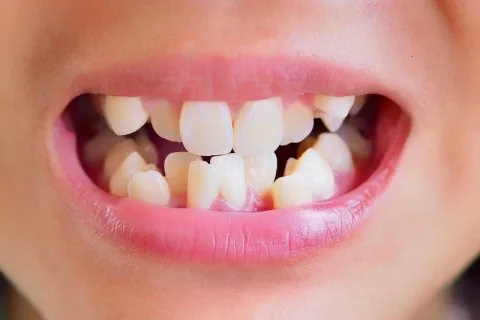
Overcrowding
Insufficient space in the jaw for teeth to fit properly. Crowded appearance, difficulty cleaning between teeth, increased risk of decay and gum disease.
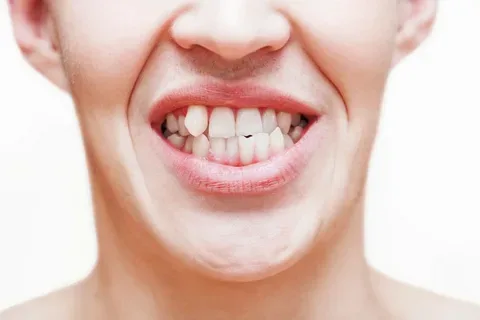
Spacing Issues
Excessive space or gaps between teeth. Gaps or spaces between teeth, potential speech issues, aesthetic concerns.

Overbite
The upper front teeth overlap significantly with the lower front teeth. Overlapping appearance, potential impact on speech and chewing

Midline Misalignment
The center of the upper front teeth does not align with the center of the lower front teeth.Asymmetric appearance, potential impact on bite and jaw alignment.
CAUSES OF CROOKED TEETH
The most significant factor is often genetics. If your parents had crooked teeth or a misaligned bite, there’s a higher likelihood that you may also experience similar dental issues The size and shape of the jaw can influence the alignment of teeth. If the jaw is too small to accommodate all the teeth comfortably, it may lead to crowding and misalignment.
Genetics
The most significant factor is often genetics. If your parents had crooked teeth or a misaligned bite.
Jaw size and shape
The size and shape of the jaw can influence the alignment of teeth. If the jaw is too small to accommodate all the teeth comfortably.
Lack of permanent teeth
If a person is missing some permanent teeth, the remaining teeth may shift to fill the gaps.
Malocclusion
This refers to a mismatch in the sizes of the upper and lower jaws, resulting in an improper bite.
Crooked teeth
Symptoms of Crooked Teeth
- Aesthetic concerns
- Difficulty cleaning teeth
- Speech difficulties
- Chewing and biting issues
- Jaw pain and headaches:
- Tooth wear
How To Take Care Missing Teeth
Taking care of your oral health, especially when you have missing teeth, is important to prevent complications and maintain overall well-being. Here are some tips on how to care for missing teeth:
Floss Regularly: Floss between your remaining natural teeth and around dental appliances to remove plaque and prevent gum disease. If you have dental bridges or implants, use floss threaders or interdental brushes for effective cleaning.
Use an Antiseptic Mouthwash: Rinse your mouth with an antiseptic or fluoride mouthwash to help control bacteria and maintain oral hygiene. Consult your dentist for recommendations based on your specific needs.
Visit Your Dentist Regularly: Schedule regular dental check-ups, even if you have missing teeth. Your dentist can monitor the health of your remaining teeth, assess your gum health, and address any concerns promptly.
Consider Dental Appliances If you have missing teeth, your dentist may recommend dental appliances such as bridges, dentures, or implants to restore function and aesthetics. Follow your dentist’s instructions for care and maintenance of these appliances.
FAQs
Crooked teeth can result from factors such as genetics, overcrowding, early loss of baby teeth, or habits like thumb-sucking.
Yes, crooked teeth may contribute to oral health issues, including difficulty in cleaning, higher risk of cavities, and misalignment-related problems like temporomandibular joint (TMJ) disorders.
Orthodontic treatment, including braces or aligners, is effective for correcting crooked teeth and is commonly initiated in adolescence, but adults can also benefit from treatment.
Missing teeth can lead to adjacent teeth shifting into the empty space, causing misalignment and bite problems.
Options for replacing a single missing tooth include dental implants, dental bridges, or removable partial dentures.
No, adults can seek orthodontic treatment at any age to address crooked teeth, and modern options offer discreet and comfortable solutions.
TREATMENTS
Denture Teeth Treatment in Lahore
Denture Teeth
Dentures are removable dental prosthetic devices designed to replace missing teeth and surrounding tissues. They are custom-made to fit a patient’s mouth and can be used to restore both function and aesthetics. Dentures typically consist of artificial teeth attached to a base made of acrylic or metal, which is crafted to mimic the appearance
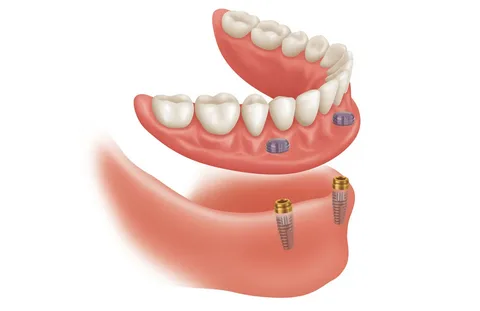
- Functional Impairment
- Aesthetic Concerns
- Speech Difficulties
- Preventing Tooth Migration
- Preserving Bone Health
- Improving Oral Health
- List Item #1
- List Item #2
- List Item #3
Types of Denture Teeth

Single Tooth Loss
This involves the absence of a single tooth anywhere within the dental arch. The most common scenario is the loss of a single tooth due to decay, trauma, or other factors
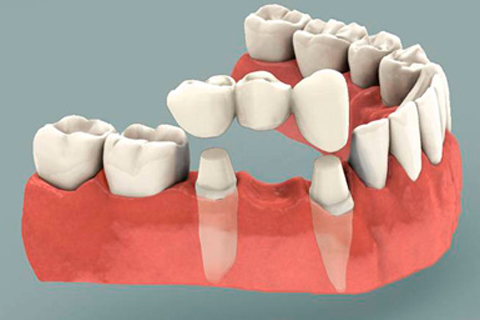
Multiple Teeth Loss
Multiple teeth missing in a specific area, either on one side (unilateral) or both sides (bilateral) of the dental arch. This can occur due to various reasons, such as advanced gum disease or trauma.
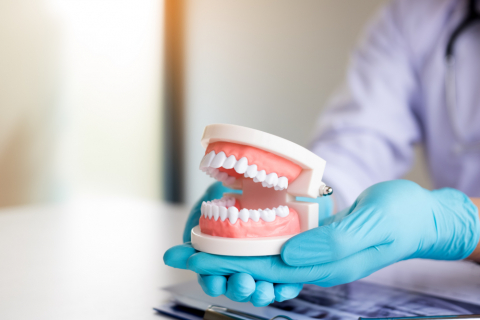
Anterior Tooth Loss
Anterior teeth refer to the front teeth, including incisors and canines. Missing anterior teeth can impact aesthetics significantly, and replacement options often prioritize cosmetic considerations.
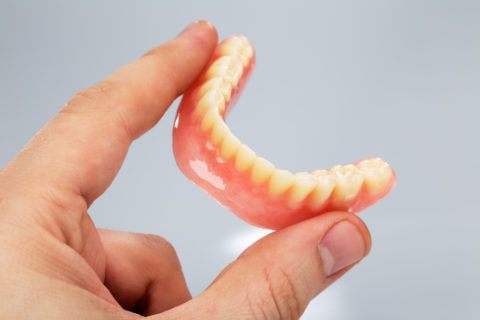
Posterior Tooth Loss
Posterior teeth include premolars and molars, located toward the back of the mouth. Missing posterior teeth can affect chewing efficiency, and replacement options focus on restoring functional aspects.
CAUSES OF DENTURE TEETH
Causes of missing teeth involves preventive measures, early intervention, and timely dental treatment. Regular dental check-ups, good oral hygiene practices, and prompt treatment of dental issues are essential in preventing tooth loss.Untreated cavities can lead to severe tooth decay, eventually requiring extraction if the damage is extensiv . Advanced stages of gum disease, such as periodontitis, can lead to tooth loss as the supporting structures of the teeth are compromised.
Poor Oral Hygiene
Inadequate oral hygiene practices, including infrequent brushing and flossing.
Smoking and Tobacco Use
Smoking and tobacco use are associated with an increased risk of gum disease, which can contribute to tooth loss.
Systemic Health Issues
Certain systemic health conditions, such as diabetes or autoimmune diseases, may affect oral health and contribute to tooth loss.
Age-Related Factors
As individuals age, they may be more susceptible to conditions such as gum disease and tooth decay, contributing to tooth loss.
Denture Teeth
Symptoms of Denture Teeth
- Difficulty Chewing
- Speech Changes
- Shifting of Adjacent Teeth
- Changes in Bite Alignment
- Jaw Pain or Discomfort
- Aesthetic Concerns
How To Take Care Missing Teeth
Taking care of your oral health, especially when you have missing teeth, is important to prevent complications and maintain overall well-being. Here are some tips on how to care for missing teeth:
Floss Regularly: Floss between your remaining natural teeth and around dental appliances to remove plaque and prevent gum disease. If you have dental bridges or implants, use floss threaders or interdental brushes for effective cleaning.
Use an Antiseptic Mouthwash: Rinse your mouth with an antiseptic or fluoride mouthwash to help control bacteria and maintain oral hygiene. Consult your dentist for recommendations based on your specific needs.
Visit Your Dentist Regularly: Schedule regular dental check-ups, even if you have missing teeth. Your dentist can monitor the health of your remaining teeth, assess your gum health, and address any concerns promptly.
Consider Dental Appliances If you have missing teeth, your dentist may recommend dental appliances such as bridges, dentures, or implants to restore function and aesthetics. Follow your dentist’s instructions for care and maintenance of these appliances.
FAQs
Dentures are removable dental appliances used to replace missing teeth and surrounding tissues, restoring oral function and aesthetics
Dentures are removable prosthetics, while dental implants are surgically placed artificial tooth roots. Dentures are a non-invasive option for tooth replacement.
The lifespan of dentures varies, but they typically last 5 to 10 years. Regular dental check-ups and proper care can extend their longevity.
Initially, wearing dentures may impact speech, but with practice, most individuals adapt and regain normal speech patterns.
Adjusting to dentures may take time. Start with soft foods, practice speaking, and follow the dentist's recommendations for gradual adaptation.
It's generally recommended to remove dentures at night to allow the gums to rest and maintain oral health. Follow your dentist's advice.
TREATMENTS
TMJ Teeth Treatment in Lahore
TMJ Teeth
TMJ stands for temporomandibular joint, which is the joint that connects your jaw to your skull. It allows you to open and close your mouth, chew, speak, and perform other functions involving jaw movement. The term “TMJ” is often used to refer to disorders or conditions affecting the temporomandibular joint and the muscles surrounding it, collectively known as temporomandibular joint disorders (TMD) or temporomandibular disorders
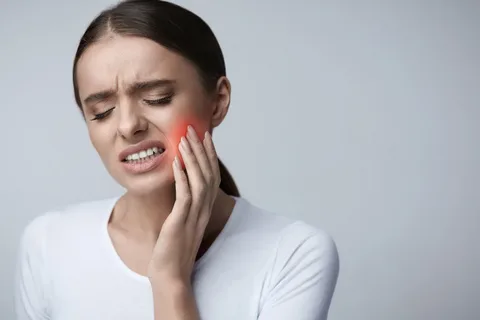
- Functional Impairment
- Aesthetic Concerns
- Speech Difficulties
- Preventing Tooth Migration
- Preserving Bone Health
- Improving Oral Health
- List Item #1
- List Item #2
- List Item #3
Types Of TMJ Teeth

Myofascial Pain Dysfunction
MPD is characterized by discomfort or pain in the muscles controlling jaw function. It often involves trigger points, which are localized areas of muscle tenderness.

Internal Derangement
This subtype involves a structural issue within the TMJ, often related to the disc that cushions the joint. Displacement or abnormal movement of the disc may occur.

Arthritis of the TMJ
Arthritis affecting the TMJ involves inflammation of the joint, which can lead to pain and stiffness. Joint pain, swelling, and difficulty with movement. Malocclusion refers to misalignment or improper fitting of the teeth, which can affect the functioning of the TMJ.
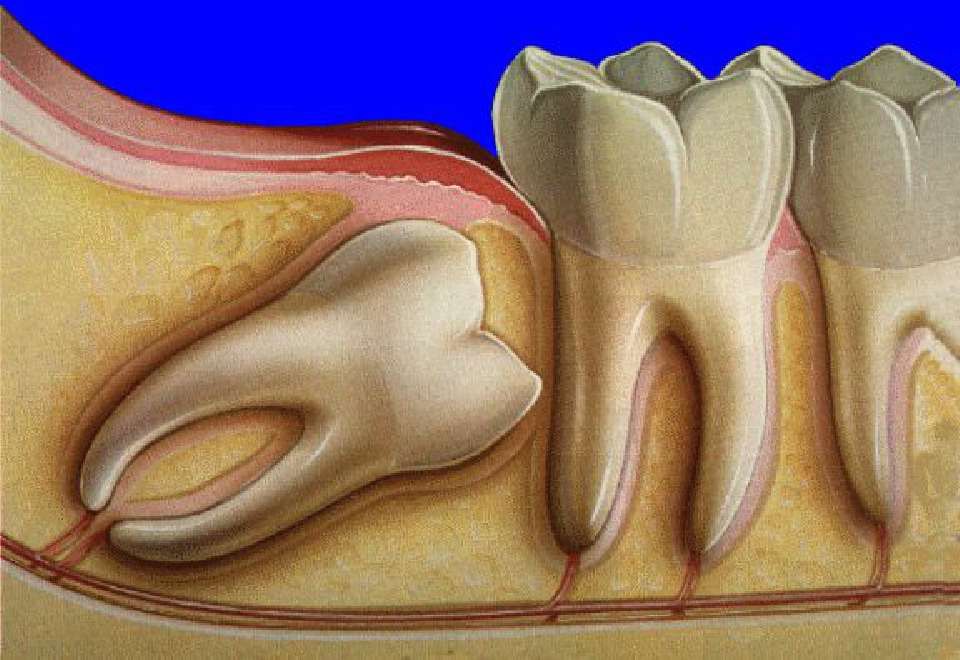
Degenerative Joint Disease
This type involves the gradual deterioration of the joint structures over time, often associated with aging. Joint pain, limited movement, and stiffness. TMD can occur secondary to other medical conditions, such as rheumatoid arthritis or connective tissue disorders.
CAUSES OF TMJ TEETH
It seems there might be a bit of confusion in the terminology. The temporomandibular joint (TMJ) is the joint that connects the jawbone (mandible) to the skull, and temporomandibular joint disorders (TMD) refer to conditions affecting this joint and the surrounding muscles. However, there is no specific reference to “TMJ teeth.”
Malocclusion
Malocclusion refers to the misalignment of teeth, which can contribute to TMD. When the teeth do not fit together properly.
Bruxism
Bruxism is a habit of grinding or clenching the teeth, often unconsciously, and it can contribute to TMD.
Tooth Wear and Erosion
Chronic clenching or grinding associated with TMD can lead to accelerated tooth wear. Impact.
Joint Inflammation and Pain
Pain and discomfort associated with TMD may affect a person's ability to bite, chew, or maintain proper oral hygiene.
TMJ teeth
Symptoms of TMJ Teeth
- Jaw Pain
- Clicking or Popping Sounds
- Limited Jaw Movement
- Ear Pain or Fullness
- Medical Conditions
- Changes in Bite
How To Take Care Missing Teeth
Taking care of your oral health, especially when you have missing teeth, is important to prevent complications and maintain overall well-being. Here are some tips on how to care for missing teeth:
Floss Regularly: Floss between your remaining natural teeth and around dental appliances to remove plaque and prevent gum disease. If you have dental bridges or implants, use floss threaders or interdental brushes for effective cleaning.
Use an Antiseptic Mouthwash: Rinse your mouth with an antiseptic or fluoride mouthwash to help control bacteria and maintain oral hygiene. Consult your dentist for recommendations based on your specific needs.
Visit Your Dentist Regularly: Schedule regular dental check-ups, even if you have missing teeth. Your dentist can monitor the health of your remaining teeth, assess your gum health, and address any concerns promptly.
Consider Dental Appliances If you have missing teeth, your dentist may recommend dental appliances such as bridges, dentures, or implants to restore function and aesthetics. Follow your dentist’s instructions for care and maintenance of these appliances.
FAQs
The TMJ is the joint connecting the jawbone to the skull, allowing for jaw movement and facilitating activities like chewing and speaking.
TMJ disorders may result from factors such as jaw injury, arthritis, teeth grinding (bruxism), stress, or a misaligned bite.
Common symptoms include jaw pain, clicking or popping sounds when moving the jaw, difficulty in opening or closing the mouth, and headaches.
Yes, stress and anxiety can exacerbate TMJ disorders, leading to increased jaw clenching and grinding.
Diagnosis involves a thorough examination by a dentist or oral health professional, which may include imaging tests like X-rays or MRI.
Yes, conservative treatments include lifestyle modifications, jaw exercises, physical therapy, and the use of oral appliances to reduce symptoms.
TREATMENTS
Tooth Extraction Treatment in Lahore
Tooth Extraction
Tooth extraction is a dental procedure involving the removal of a tooth from its socket in the jawbone. This procedure is typically performed for various reasons, including severe decay, advanced gum disease, impacted wisdom teeth, or orthodontic considerations. The dentist uses specialized instruments to loosen and remove the tooth carefully. Tooth extraction is a common and generally safe dental procedure designed to alleviate pain, prevent further oral health issues, and promote overall dental well-being.
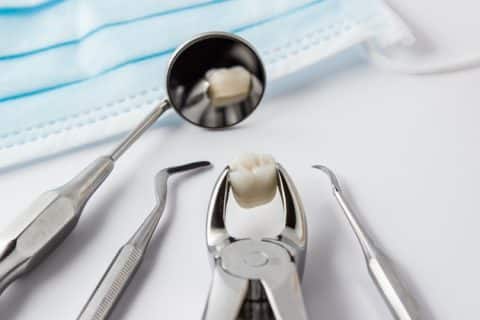
- Functional Impairment
- Aesthetic Concerns
- Speech Difficulties
- Preventing Tooth Migration
- Preserving Bone Health
- Improving Oral Health
- List Item #1
- List Item #2
- List Item #3
Types of Tooth Extraction
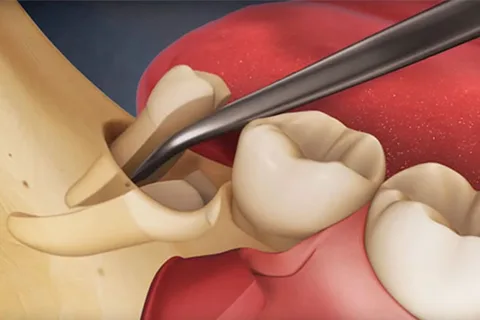
Simple Extraction
Simple extractions are performed on visible teeth that are easily accessible and can be removed without extensive surgical techniques.The dentist uses dental instruments, called elevators and forceps, to loosen and lift the tooth from its socket

Surgical Extraction
Surgical extractions are necessary for teeth that are not easily accessible or are more complex to remove. This includes impacted teeth, broken teeth below the gumline, or teeth with curved or long roots.
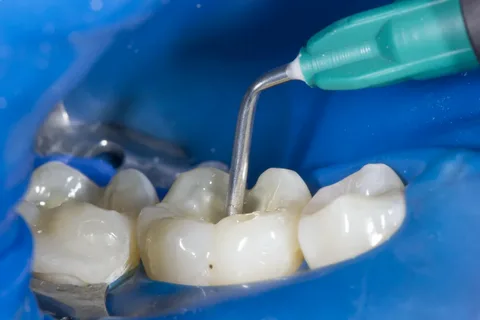
Vital Pulp Therapy
Vital pulp therapy may be considered in cases where the pulp is injured but not extensively infected. It involves treating the affected pulp to maintain its vitality and function.

Pulpotomy
A pulpotomy is a partial removal of the pulp, often performed on primary (baby) teeth. It involves removing the infected portion of the pulp from the crown of the tooth while leaving the pulp in the roots intact.
CAUSES OF TOOTH EXTRACTION
Tooth extraction is a dental procedure where a tooth is removed from its socket. Several reasons may warrant the need for tooth extraction, and these can be broadly categorized into two types: medical (health-related) reasons and dental (tooth-related) reasons. Here are common causes for tooth extraction.The dentist uses specialized instruments to loosen and remove the tooth carefully. Following extraction, patients may experience some discomfort and are advised on proper postoperative care, which may include pain management and avoiding certain activities
Severe Tooth Decay
Extensive decay that has damaged the tooth beyond the point of repair may necessitate extraction.
Periodontal Disease
Advanced gum disease can lead to the loss of supporting bone around the tooth, causing tooth mobility.
Impacted Wisdom Teeth
Wisdom teeth, or third molars, may become impacted (unable to fully emerge from the gum) and cause pain, infection, or damage to neighboring teeth, necessitating extraction.
Orthodontic Treatment
Some orthodontic treatments may require the extraction of one or more teeth to create space or achieve proper alignment.
TOOTH EXTRACTION
Symptoms of Tooth Extraction
- Speech Changes
- Shifting of Adjacent Teeth
- Changes in Bite Alignment
- Bone Loss
- Aesthetic Concerns
How To Take Care Missing Teeth
Taking care of your oral health, especially when you have missing teeth, is important to prevent complications and maintain overall well-being. Here are some tips on how to care for missing teeth:
Floss Regularly: Floss between your remaining natural teeth and around dental appliances to remove plaque and prevent gum disease. If you have dental bridges or implants, use floss threaders or interdental brushes for effective cleaning.
Use an Antiseptic Mouthwash: Rinse your mouth with an antiseptic or fluoride mouthwash to help control bacteria and maintain oral hygiene. Consult your dentist for recommendations based on your specific needs.
Visit Your Dentist Regularly: Schedule regular dental check-ups, even if you have missing teeth. Your dentist can monitor the health of your remaining teeth, assess your gum health, and address any concerns promptly.
Consider Dental Appliances If you have missing teeth, your dentist may recommend dental appliances such as bridges, dentures, or implants to restore function and aesthetics. Follow your dentist’s instructions for care and maintenance of these appliances.
FAQs
Tooth extraction is the removal of a tooth from its socket in the jawbone, typically performed due to various reasons such as decay, damage, or crowding.
Reasons for tooth extraction include severe decay, advanced gum disease, trauma, overcrowding, or the need to remove impacted wisdom teeth.
Tooth extraction is typically performed under local anesthesia, ensuring that patients do not feel pain during the procedure.
The duration varies, but a simple extraction may take a few minutes, while more complex extractions or multiple extractions may take longer.
The initial recovery period is a few days, during which patients are advised to follow postoperative care instructions, including rest and avoiding certain foods.
While complications are rare, they can include infection, excessive bleeding, or dry socket. Following postoperative instructions minimizes the risk.
TREATMENTS
Sedation Teeth Treatment in Lahore
Sedation Teeth
Dental sedation is commonly used for individuals who may The choice of sedation depends on factors such as the patient’s medical history, the complexity of the dental procedure, and the level of anxiety. Sedation dentistry aims to make dental visits more comfortable and stress-free for patients, ensuring they can receive necessary dental care without undue apprehension
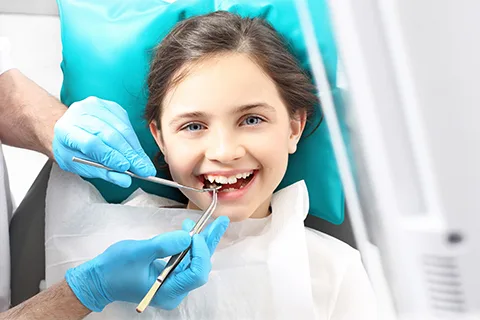
- Functional Impairment
- Aesthetic Concerns
- Speech Difficulties
- Preventing Tooth Migration
- Preserving Bone Health
- Improving Oral Health
- List Item #1
- List Item #2
- List Item #3
Types Of Sedation Teeth
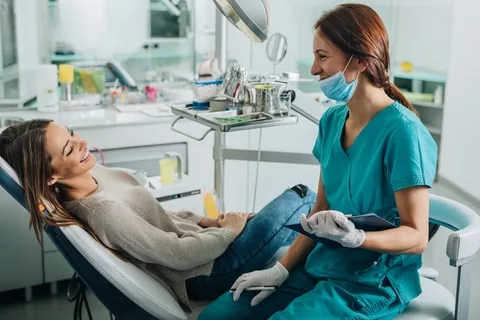
Minimal Sedation
This is the mildest form of sedation, where the patient remains awake and alert but feels relaxed. It is often achieved using oral medications or nitrous oxide
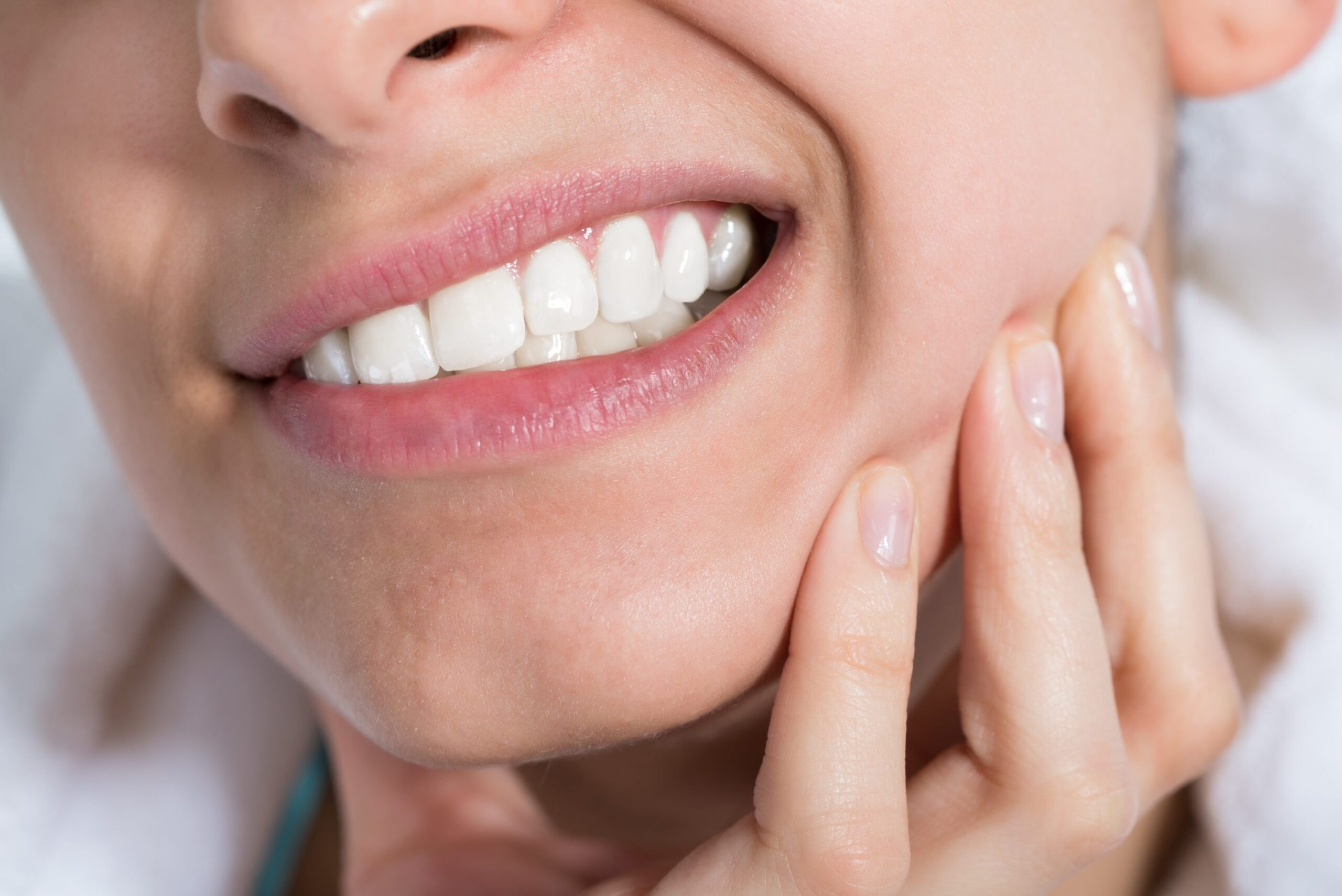
Nitrous Oxide Sedation
Commonly known as “laughing gas,” nitrous oxide is inhaled through a mask. It induces a state of relaxation, and its effects wear off quickly after the gas is turned off.

Local Anesthesia
While not a sedation method per se, local anesthesia involves the injection of anesthetic agents to numb a specific area of the mouth.
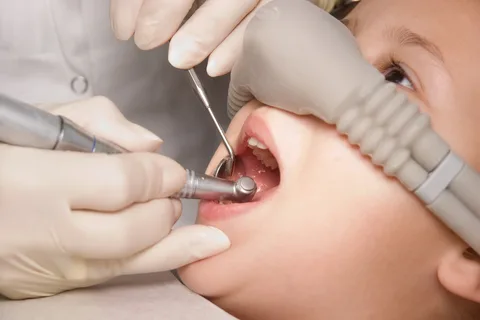
Intravenous
Medications are delivered directly into the bloodstream through a vein, inducing a deeper level of sedation. Patients may be in a semi-conscious state, experiencing reduced awareness of the procedure.
CAUSES OF SEDATION TEETH
The most significant factor is often genetics. If your parents had crooked teeth or a misaligned bite, there’s a higher likelihood that you may also experience similar dental issues The size and shape of the jaw can influence the alignment of teeth. If the jaw is too small to accommodate all the teeth comfortably, it may lead to crowding and misalignment.
Dental Anxiety or Phobia
Fear or anxiety related to dental procedures is a prevalent reason for using sedation.
Complex or Invasive Procedures
Sedation may be used for more extensive or invasive dental procedures to ensure the patient's comfort and cooperation.
Reducing Gag Reflex
Some patients have a sensitive gag reflex, which can make dental procedures challenging.
Pediatric Dentistry
Sedation is often employed in pediatric dentistry to help children .
sedation teeth
Symptoms of Sedation Teeth
- Oral Sedation
- Nitrous Oxide
- Intravenous
- Pain Management
- Medical Conditions
- Bone Loss
How To Take Care Missing Teeth
Taking care of your oral health, especially when you have missing teeth, is important to prevent complications and maintain overall well-being. Here are some tips on how to care for missing teeth:
Floss Regularly: Floss between your remaining natural teeth and around dental appliances to remove plaque and prevent gum disease. If you have dental bridges or implants, use floss threaders or interdental brushes for effective cleaning.
Use an Antiseptic Mouthwash: Rinse your mouth with an antiseptic or fluoride mouthwash to help control bacteria and maintain oral hygiene. Consult your dentist for recommendations based on your specific needs.
Visit Your Dentist Regularly: Schedule regular dental check-ups, even if you have missing teeth. Your dentist can monitor the health of your remaining teeth, assess your gum health, and address any concerns promptly.
Consider Dental Appliances If you have missing teeth, your dentist may recommend dental appliances such as bridges, dentures, or implants to restore function and aesthetics. Follow your dentist’s instructions for care and maintenance of these appliances.
FAQs
Dental sedation involves the use of medications to help patients relax and remain calm during dental procedures.
Sedation is considered for patients with dental anxiety, fear, or those undergoing extensive procedures to enhance comfort and reduce stress.
Common types include nitrous oxide (laughing gas), oral sedatives, intravenous (IV) sedation, and general anesthesia, each offering varying levels of relaxation.
When administered by trained professionals, dental sedation is generally safe. The dentist considers the patient's health history and monitors them throughout the procedure.
Oral sedation involves taking prescribed medications before the appointment to induce a relaxed and drowsy state during the dental procedure
After nitrous oxide or oral sedation, patients may be able to drive, but after IV sedation or general anesthesia, it is advised to have a responsible adult accompany them home.
TREATMENTS
Root Canal Treatment in Lahore
Root Canal Teeth
A root canal is a dental procedure that is performed to treat and save a tooth that is severely damaged or infected. Inside each tooth, there is a pulp chamber containing nerves, blood vessels, and connective tissues. The pulp extends into the roots through narrow channels called root canals.The pulp is essential during tooth development but can be removed once the tooth is fully mature.
.
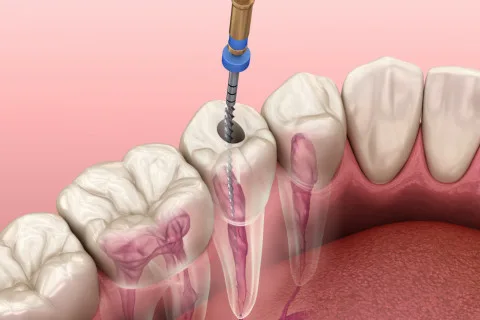
- Functional Impairment
- Aesthetic Concerns
- Speech Difficulties
- Preventing Tooth Migration
- Preserving Bone Health
- Improving Oral Health
- List Item #1
- List Item #2
- List Item #3
Types of Root Canal
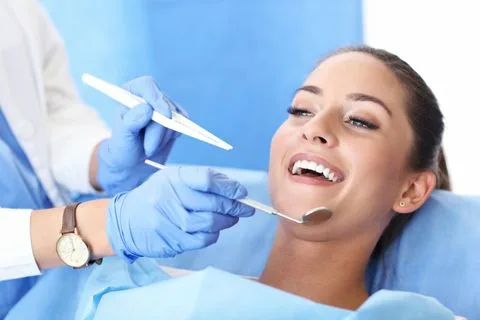
Standard Root Canal Treatment

Apicoectomy
An apicoectomy is a surgical procedure that involves removing the tip of the tooth’s root along with any infected tissue. This may be recommended when a standard root canal has not effectively resolved the issue.
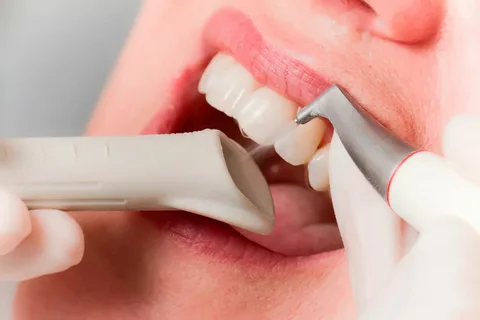
Vital Pulp Therapy
Vital pulp therapy may be considered in cases where the pulp is injured but not extensively infected. It involves treating the affected pulp to maintain its vitality and function.

Pulpotomy
A pulpotomy is a partial removal of the pulp, often performed on primary (baby) teeth. It involves removing the infected portion of the pulp from the crown of the tooth while leaving the pulp in the roots intact.
CAUSES OF ROOT CANAL
Root canal treatment is typically needed when the dental pulp, the innermost part of the tooth containing nerves, blood vessels, and connective tissues, becomes damaged, infected.
Tooth Decay
Untreated tooth decay is a common cause of root canal problems.
Dental Trauma
Physical trauma to a tooth, such as a severe impact or injury, can damage the pulp and may lead to inflammation or infection.
Abscessed Tooth
An untreated dental infection can progress to an abscess, which is a pocket of pus that forms at the root of the tooth.
Pediatric Dentistry
Sedation is often employed in pediatric dentistry to help children .
ROOT CANAL
Symptoms of Root Canal
- Oral Root Canal
- Nitrous Oxide
- Intravenous
- Pain Management
- Medical Conditions
- Bone Loss
How To Take Care Missing Teeth
Taking care of your oral health, especially when you have missing teeth, is important to prevent complications and maintain overall well-being. Here are some tips on how to care for missing teeth:
Floss Regularly: Floss between your remaining natural teeth and around dental appliances to remove plaque and prevent gum disease. If you have dental bridges or implants, use floss threaders or interdental brushes for effective cleaning.
Use an Antiseptic Mouthwash: Rinse your mouth with an antiseptic or fluoride mouthwash to help control bacteria and maintain oral hygiene. Consult your dentist for recommendations based on your specific needs.
Visit Your Dentist Regularly: Schedule regular dental check-ups, even if you have missing teeth. Your dentist can monitor the health of your remaining teeth, assess your gum health, and address any concerns promptly.
Consider Dental Appliances If you have missing teeth, your dentist may recommend dental appliances such as bridges, dentures, or implants to restore function and aesthetics. Follow your dentist’s instructions for care and maintenance of these appliances.
FAQs
A root canal is a dental procedure that involves removing infected or damaged pulp from the inside of a tooth, followed by cleaning, disinfecting, and sealing the root canals.
A root canal is necessary when the pulp inside a tooth becomes infected or damaged due to deep decay, trauma, or other dental issues.
Modern root canal procedures are performed under local anesthesia, making the process generally comfortable, with minimal pain or discomfort.
After a root canal, the tooth is typically restored with a crown to strengthen and protect it, restoring normal function.
The main alternative to a root canal is tooth extraction, but preserving the natural tooth with a root canal is generally preferred for maintaining oral health.
A tooth that undergoes a root canal may become more brittle over time. However, the placement of a crown after the procedure helps strengthen and protect the tooth.
TREATMENTS
Missing Teeth Treatment in Lahore
Missing Teeth
Missing teeth can significantly affect oral function, making it challenging to bite, chew, and speak properly. Individuals often seek dental solutions to restore these functions.. Missing teeth can impact the aesthetics of the smile, facial structure, and overall oral function. Common consequences include difficulty chewing, speech challenges, and potential shifts in adjacent teeth. Treatment options for missing teeth include dental implants, bridges, dentures, or other restorative procedures, depending on the individual’s dental health and preferences.
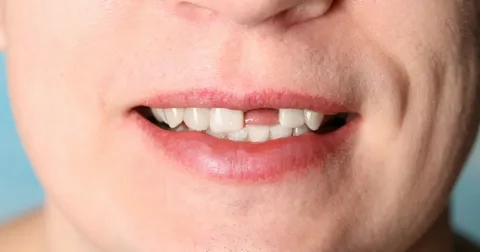
- Functional Impairment
- Aesthetic Concerns
- Speech Difficulties
- Preventing Tooth Migration
- Preserving Bone Health
- Improving Oral Health
- List Item #1
- List Item #2
- List Item #3
Types of Missing Teeth
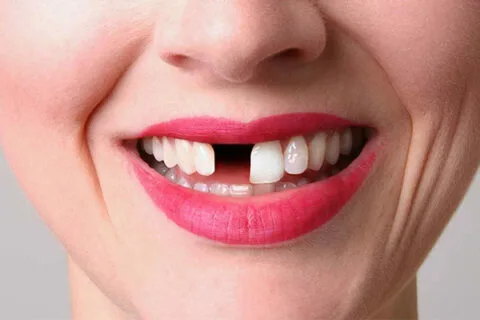
Single Tooth Loss
This involves the absence of a single tooth anywhere within the dental arch. The most common scenario is the loss of a single tooth due to decay, trauma, or other factors
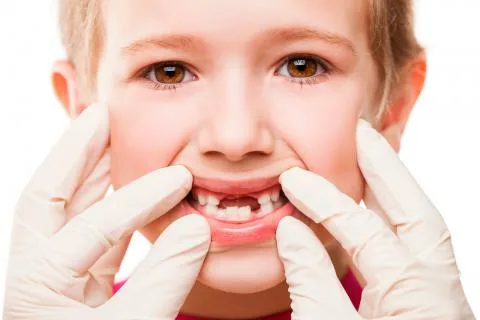
Multiple Teeth Loss
Multiple teeth missing in a specific area, either on one side (unilateral) or both sides (bilateral) of the dental arch. This can occur due to various reasons, such as advanced gum disease or trauma.

Anterior Tooth Loss
Anterior teeth refer to the front teeth, including incisors and canines. Missing anterior teeth can impact aesthetics significantly, and replacement options often prioritize cosmetic considerations.
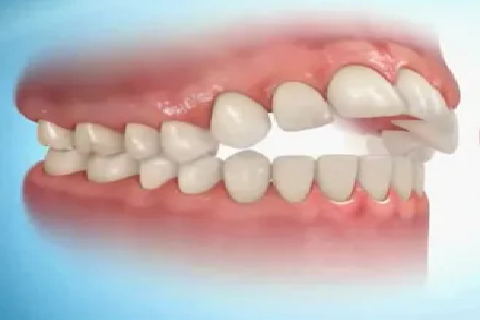
Posterior Tooth Loss
Posterior teeth include premolars and molars, located toward the back of the mouth. Missing posterior teeth can affect chewing efficiency, and replacement options focus on restoring functional aspects.
CAUSES OF MISSING TEETH
Causes of missing teeth involves preventive measures, early intervention, and timely dental treatment. Regular dental check-ups, good oral hygiene practices, and prompt treatment of dental issues are essential in preventing tooth loss. Untreated cavities can lead to severe tooth decay, eventually requiring extraction if the damage is extensive. Advanced stages of gum disease, such as periodontitis, can lead to tooth loss as the supporting structures of the teeth are compromised.
Poor Oral Hygiene
Inadequate oral hygiene practices, including infrequent brushing and flossing.
Smoking and Tobacco Use
Smoking and tobacco use are associated with an increased risk of gum disease, which can contribute to tooth loss.
Systemic Health Issues
Certain systemic health conditions, such as diabetes or autoimmune diseases, may affect oral health and contribute to tooth loss.
Age-Related Factors
As individuals age, they may be more susceptible to conditions such as gum disease and tooth decay, contributing to tooth loss.
Missing teeth
Symptoms of Missing Teeth
- Difficulty Chewing
- Speech Changes
- Shifting of Adjacent Teeth
- Changes in Bite Alignment
- Jaw Pain or Discomfort
- Aesthetic Concerns
How To Take Care Missing Teeth
Taking care of your oral health, especially when you have missing teeth, is important to prevent complications and maintain overall well-being. Here are some tips on how to care for missing teeth:
Floss Regularly: Floss between your remaining natural teeth and around dental appliances to remove plaque and prevent gum disease. If you have dental bridges or implants, use floss threaders or interdental brushes for effective cleaning.
Use an Antiseptic Mouthwash: Rinse your mouth with an antiseptic or fluoride mouthwash to help control bacteria and maintain oral hygiene. Consult your dentist for recommendations based on your specific needs.
Visit Your Dentist Regularly: Schedule regular dental check-ups, even if you have missing teeth. Your dentist can monitor the health of your remaining teeth, assess your gum health, and address any concerns promptly.
Consider Dental Appliances If you have missing teeth, your dentist may recommend dental appliances such as bridges, dentures, or implants to restore function and aesthetics. Follow your dentist’s instructions for care and maintenance of these appliances.
FAQs
Common reasons for missing teeth include tooth decay, gum disease, trauma or injury, congenital absence (not having certain teeth from birth), and sometimes the removal of teeth due to orthodontic or surgical reasons.
Missing teeth can lead to various oral health issues, such as difficulty chewing, changes in bite alignment, jawbone loss, speech problems, and a potential impact on self-esteem and confidence.
Options for replacing missing teeth include dental implants, bridges, dentures, and implant-supported dentures. The choice depends on factors like the number of missing teeth, oral health, budget, and individual preferences.
Missing teeth can lead to adjacent teeth shifting into the empty space, causing misalignment and bite problems.
Options for replacing a single missing tooth include dental implants, dental bridges, or removable partial dentures.
Dental bridges are prosthetic devices that bridge the gap created by missing teeth. They consist of artificial teeth anchored to adjacent natural teeth or dental implants.
TREATMENTS
Worn Teeth Treatment in Lahore
Worn Teeth
Worn teeth often a result of various factors, refer to the condition where the protective enamel on the tooth surfaces has experienced significant loss. This erosion can be caused by behaviors like teeth grinding (bruxism), abrasive tooth brushing, and chewing on hard objects. Acidic foods and beverages, age-related wear, and poor bite alignment can also contribute to enamel erosion. Worn teeth increased susceptibility to cavities, and potential jaw pain
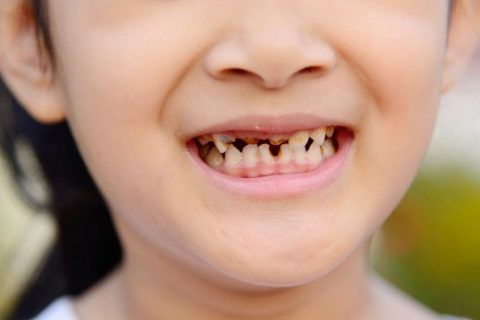
- Functional Impairment
- Aesthetic Concerns
- Speech Difficulties
- Preventing Tooth Migration
- Preserving Bone Health
- Improving Oral Health
- List Item #1
- List Item #2
- List Item #3
Types Of Worn Teeth

Attrition
This type of wear occurs when tooth surfaces grind against each other. It is often associated with bruxism or teeth grinding, which can happen during sleep or as a result of stress.
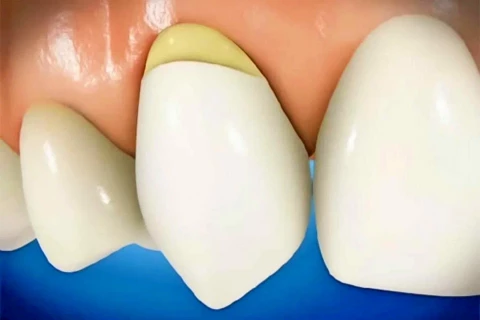
Abrasion
Abrasion refers to the wear of teeth due to external factors, such as improper tooth brushing techniques, using a hard-bristled toothbrush, or abrasive toothpaste. Over time, these practices can lead to enamel loss.

Local Anesthesia
While not a sedation method per se, local anesthesia involves the injection of anesthetic agents to numb a specific area of the mouth.

Intravenous
Medications are delivered directly into the bloodstream through a vein, inducing a deeper level of sedation. Patients may be in a semi-conscious state, experiencing reduced awareness of the procedure.
CAUSES OF WORN TEETH
The most significant factor is often genetics.Several factors can contribute to worn teeth, and the causes can vary based on individual habits, lifestyle, and oral health. Here are common causes of worn teeth: influence the alignment of teeth. If the jaw is too small to accommodate all the teeth comfortably, it may lead to crowding and misalignment. Dentists can assess the condition of the teeth, identify contributing factors, and recommend interventions. Treatment may include behavior modification, the use of dental appliances
Bruxism
Persistent grinding or clenching of teeth, especially during sleep
Improper Bite
Misalignment of the teeth or jaws can create uneven pressure during biting and chewing.
Abrasive Toothbrushing
Aggressive brushing with a hard-bristled toothbrush or abrasive toothpaste can wear down enamel over time.
Acidic Foods and Beverages
Regular consumption of acidic foods and drinks, such as citrus fruits, sodas, or certain wines.
Worn teeth
Symptoms of Worn Teeth
- Visible Wear
- Chipped or Cracked Teeth
- Discoloration
- Difficulty Chewing
- Medical Conditions
- Teeth Alignment Changes
How To Take Care Missing Teeth
Taking care of your oral health, especially when you have missing teeth, is important to prevent complications and maintain overall well-being. Here are some tips on how to care for missing teeth:
Floss Regularly: Floss between your remaining natural teeth and around dental appliances to remove plaque and prevent gum disease. If you have dental bridges or implants, use floss threaders or interdental brushes for effective cleaning.
Use an Antiseptic Mouthwash: Rinse your mouth with an antiseptic or fluoride mouthwash to help control bacteria and maintain oral hygiene. Consult your dentist for recommendations based on your specific needs.
Visit Your Dentist Regularly: Schedule regular dental check-ups, even if you have missing teeth. Your dentist can monitor the health of your remaining teeth, assess your gum health, and address any concerns promptly.
Consider Dental Appliances If you have missing teeth, your dentist may recommend dental appliances such as bridges, dentures, or implants to restore function and aesthetics. Follow your dentist’s instructions for care and maintenance of these appliances.
FAQs
Worn teeth can result from factors such as teeth grinding (bruxism), clenching, acidic foods, aging, and certain medical conditions.
Teeth grinding exerts excessive force on teeth, leading to wear on the tooth enamel and potential damage to the tooth structure.
Symptoms may include tooth sensitivity, flattened or chipped teeth, jaw pain, headaches, and changes in tooth appearance.
Yes, worn teeth can be restored through various dental treatments, including dental bonding, veneers, crowns, and other restorative procedures.
Bruxism management may involve using a custom nightguard, stress reduction techniques, and addressing underlying causes with the help of a dentist.
Yes, cosmetic solutions like veneers and dental bonding can enhance the appearance of worn teeth while providing strength and protection.
TREATMENTS
Oral Cancer Teeth Treatment in Lahore
Oral Cancer Teeth
Oral cancer can affect various parts of the oral cavity, including the soft tissues and, in some cases, the jawbones and teeth. Here are some key points regarding oral cancer in relation to teeth. Oral cancer can occur in different areas of the oral cavity, such as the lips, tongue, gums, inner lining of the cheeks, roof and floor of the mouth, and the tonsils. The specific location of the cancer can influence its symptoms and treatment.
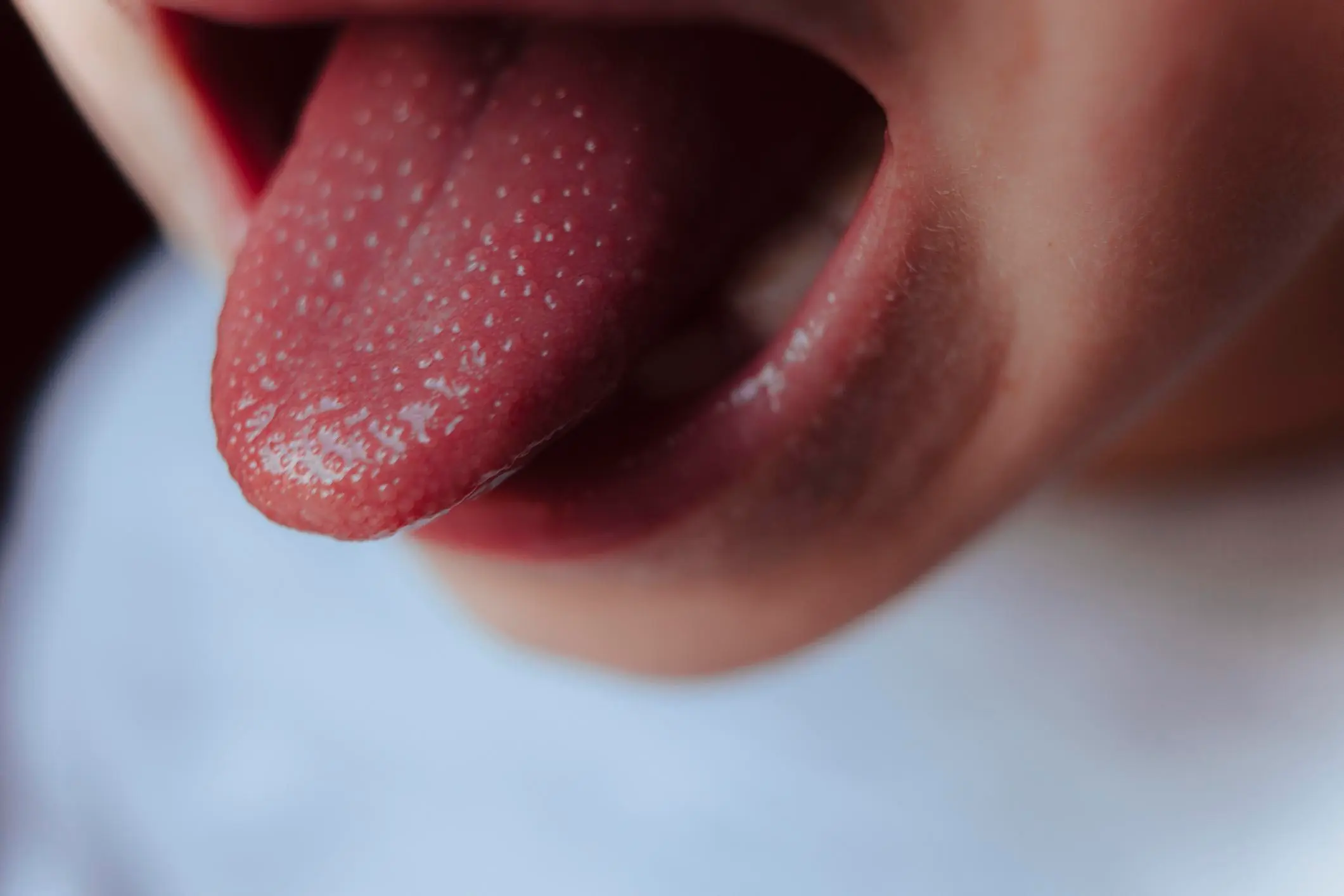
- Functional Impairment
- Aesthetic Concerns
- Speech Difficulties
- Preventing Tooth Migration
- Preserving Bone Health
- Improving Oral Health
- List Item #1
- List Item #2
- List Item #3
Types Of Oral Cancer Teeth
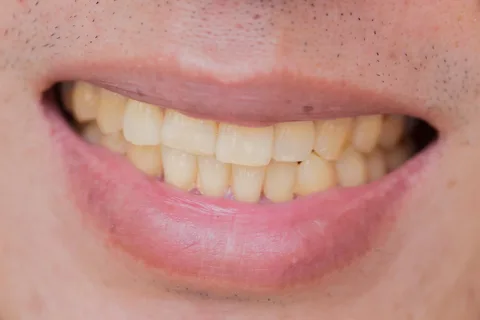
Proximity to Teeth
Oral cancers often develop in close proximity to teeth. As the cancer progresses, it may involve nearby structures, potentially affecting the health of the adjacent teeth. In dental anatomy and oral health, understanding the proximity to teeth is essential for assessing potential issues, surgeries.

Treatment Effects
The treatments for oral cancer, such as surgery, radiation therapy, and chemotherapy, can have side effects that impact oral health. Patients undergoing treatment for oral cancer should receive personalized care plans tailored to their specific needs and circumstances.
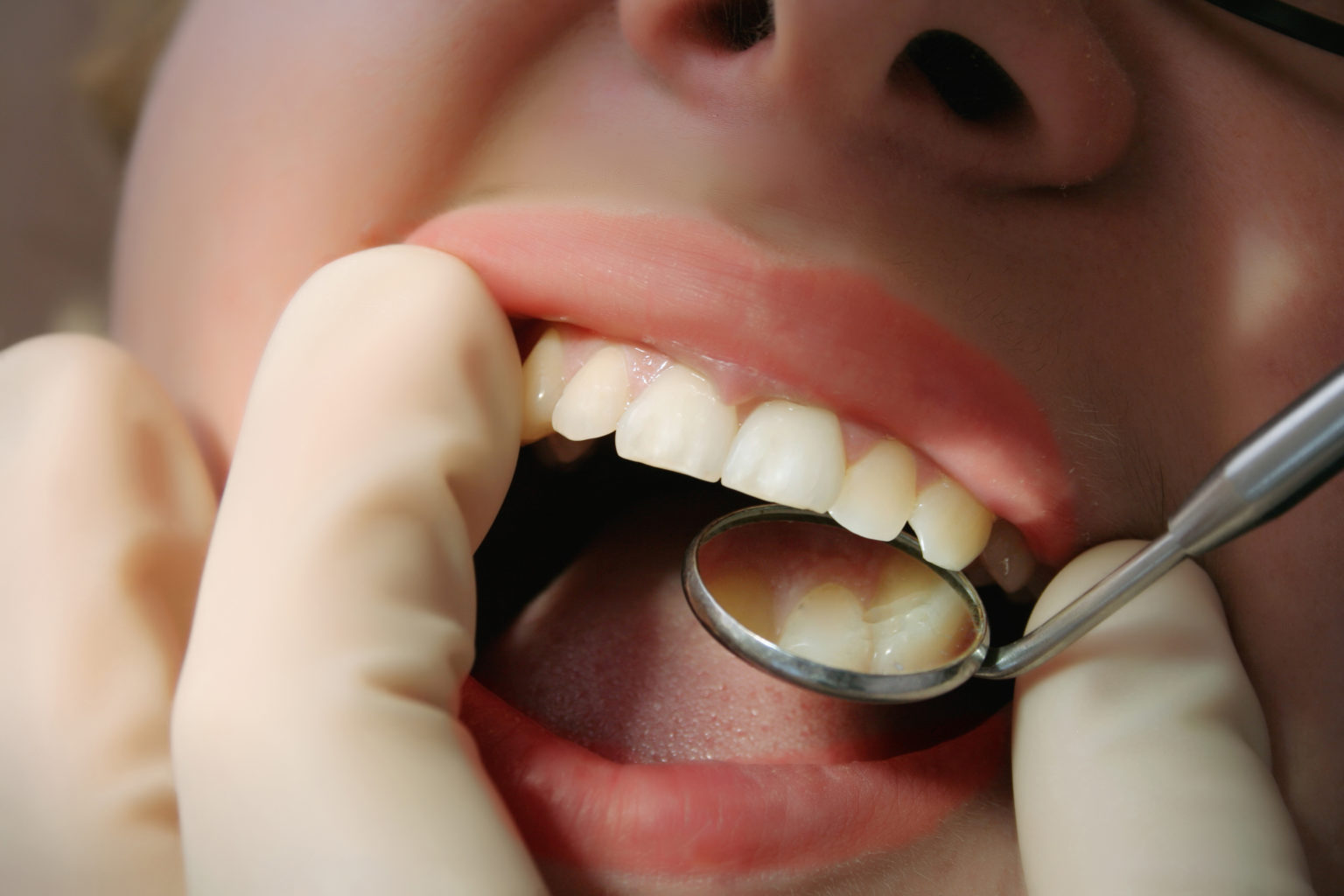
Compromised Oral Hygiene
The presence of oral cancer and its treatment may make it challenging for individuals to maintain good oral hygiene practices. Difficulty in brushing and flossing can contribute to dental issues.

Tooth Mobility
In advanced stages of oral cancer, there may be direct involvement of the jawbones, potentially leading to tooth mobility or loss. This may include addressing any existing dental problems before initiating cancer treatment
CAUSES OF ORAL CANCER TEETH
Oral cancer typically develops in the soft tissues of the oral cavity rather than directly affecting teeth. However, certain risk factors and habits associated with oral cancer can indirectly impact the health of teeth. Here are some factors and behaviors linked to an increased risk of oral cancer, which may have consequences for oral health, including the condition of teeth
Tobacco Use
Smoking or using smokeless tobacco products, such as chewing tobacco, significantly increases the risk of oral cancer.
Alcohol Consumption
Excessive and prolonged alcohol consumption is another significant risk factor for oral cancer.
Human Papillomavirus (HPV) Infection
Certain strains of HPV, especially HPV-16, have been associated with an increased risk of oral cancer.
Dietary Factors
A diet lacking in fruits and vegetables, which are rich in vitamins and antioxidants, may be associated with an increased risk of oral cancer..
ORAL CANCER TEETH
Symptoms of Oral Cancer Teeth
- Persistent Mouth Sores
- Red or White Patches
- Unexplained Bleeding
- Difficulty Swallowing or Chewing
- Lump or Thickening
- Ear Pain
How To Take Care Missing Teeth
Taking care of your oral health, especially when you have missing teeth, is important to prevent complications and maintain overall well-being. Here are some tips on how to care for missing teeth:
Floss Regularly: Floss between your remaining natural teeth and around dental appliances to remove plaque and prevent gum disease. If you have dental bridges or implants, use floss threaders or interdental brushes for effective cleaning.
Use an Antiseptic Mouthwash: Rinse your mouth with an antiseptic or fluoride mouthwash to help control bacteria and maintain oral hygiene. Consult your dentist for recommendations based on your specific needs.
Visit Your Dentist Regularly: Schedule regular dental check-ups, even if you have missing teeth. Your dentist can monitor the health of your remaining teeth, assess your gum health, and address any concerns promptly.
Consider Dental Appliances If you have missing teeth, your dentist may recommend dental appliances such as bridges, dentures, or implants to restore function and aesthetics. Follow your dentist’s instructions for care and maintenance of these appliances.
FAQs
Yes, oral cancer can affect the teeth by causing changes in tooth color, mobility, or alignment, and it may lead to tooth decay.
Smoking is a significant risk factor for oral cancer, and it can contribute to teeth staining, decay, and increased susceptibility to gum disease.
Radiation therapy or chemotherapy used in oral cancer treatment can have side effects, such as dry mouth, increased risk of cavities, and changes in taste.
Yes, oral cancer may cause tooth sensitivity, often associated with changes in the enamel or exposure of tooth roots.
Yes, oral cancer may cause changes such as white or red patches, ulcers, or lumps that affect the appearance and health of the teeth.
While not entirely preventable, minimizing risk factors such as tobacco use, practicing good oral hygiene, and attending regular dental check-ups can help reduce the likelihood of oral cancer affecting the teeth.
TREATMENTS
Scaling and Polishing Teeth Treatment in Lahore
Scaling and Polishing Teeth
Scaling and polishing are dental procedures commonly performed during a dental cleaning appointment. These procedures are important for maintaining good oral hygiene and preventing dental problems such as gum disease and tooth decay.Scaling is a procedure designed to remove dental plaque and calculus (tartar) from the surfaces of teeth. Dental professionals use specialized instruments, such as ultrasonic scalers or hand scalers, to carefully remove the hardened deposits from the tooth surfaces.

- Functional Impairment
- Aesthetic Concerns
- Speech Difficulties
- Preventing Tooth Migration
- Preserving Bone Health
- Improving Oral Health
- List Item #1
- List Item #2
- List Item #3
Types Of Scaling and Polishing Teeth

Ultrasonic Scaling
This method uses an ultrasonic scaler, which is a vibrating metal tip that sprays a cooling mist of water. The vibrations help to break down and remove plaque and calculus from the teeth.

Hand Scaling
Dental professionals may use hand instruments, such as scalers and curettes, to manually remove plaque and calculus from tooth surfaces.

Air-Polishing
Air-polishing involves the use of a handheld device that delivers a high-pressure stream of air, water, and a fine powder

Piezoelectric Scaling
An apicoectomy is a surgical procedure that involves removing the tip of the tooth’s root along with any infected tissue.
CAUSES OF SCALING AND POLISHING TEETH
Scaling and polishing are preventive dental procedures performed to maintain optimal oral health and prevent common dental issues. These procedures are typically recommended as part of routine dental cleanings. The need for scaling and polishing arises from various factors related to the accumulation of plaque and calculus on the teeth.
Plaque Accumulation
Plaque is a soft, sticky film of bacteria that forms on the teeth after eating or drinking.
Stain Removal
Consumption of certain foods, beverages (such as coffee and red wine), and habits like smoking can contribute to the staining of teeth.
Preventive Maintenance
Scaling and polishing are proactive measures to prevent dental problems before they become more severe.
Orthodontic Treatment
Individuals undergoing orthodontic treatment with braces or other appliances may find it challenging.
Scaling and Polishing
Symptoms of Scaling and Polishing Teeth
- Clean and Smooth Feeling
- Reduced Staining
- Improved Breath
- Sensitivity
- Gum Tenderness
- Gum Bleeding
How To Take Care Missing Teeth
Taking care of your oral health, especially when you have missing teeth, is important to prevent complications and maintain overall well-being. Here are some tips on how to care for missing teeth:
Floss Regularly: Floss between your remaining natural teeth and around dental appliances to remove plaque and prevent gum disease. If you have dental bridges or implants, use floss threaders or interdental brushes for effective cleaning.
Use an Antiseptic Mouthwash: Rinse your mouth with an antiseptic or fluoride mouthwash to help control bacteria and maintain oral hygiene. Consult your dentist for recommendations based on your specific needs.
Visit Your Dentist Regularly: Schedule regular dental check-ups, even if you have missing teeth. Your dentist can monitor the health of your remaining teeth, assess your gum health, and address any concerns promptly.
Consider Dental Appliances If you have missing teeth, your dentist may recommend dental appliances such as bridges, dentures, or implants to restore function and aesthetics. Follow your dentist’s instructions for care and maintenance of these appliances.
FAQs
Scaling and polishing is a dental procedure that involves the removal of plaque, tartar, and stains from teeth to promote oral health and enhance aesthetics.
For most individuals, it is recommended every six months as part of routine dental care to maintain optimal oral hygiene.
The procedure is typically painless as it is performed under local anesthesia, ensuring patient comfort.
No, scaling and polishing focus on removing external deposits, while tooth decay requires restorative procedures like fillings.
Side effects are minimal; some individuals may experience mild sensitivity or gum irritation, which usually resolves quickly.
While it removes surface stains, scaling and polishing are not a teeth whitening procedure. Professional teeth whitening may be recommended separately.
TREATMENTS
Wisdom Teeth Extraction Treatment in Lahore
Wisdom Teeth Extraction
Wisdom teeth often emerge in late adolescence or early adulthood, and their eruption can sometimes lead to various dental issues. Wisdom teeth extraction is a common dental procedure to address problems associated with these molars. Here is an overview of wisdom teeth extraction.These teeth are the last set of molars located at the back of the mouth and usually emerge in late adolescence or early adulthood. Wisdom teeth extraction may be recommended for various reasons:
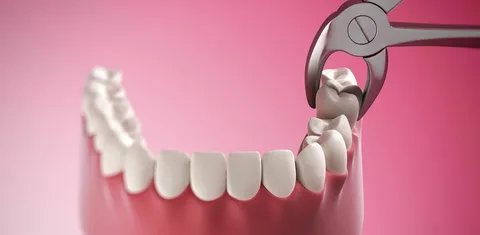
- Functional Impairment
- Aesthetic Concerns
- Speech Difficulties
- Preventing Tooth Migration
- Preserving Bone Health
- Improving Oral Health
- List Item #1
- List Item #2
- List Item #3
Types Of Wisdom Teeth Extraction

Simple Extraction
This type of extraction is performed on wisdom teeth that have fully erupted and are visible in the mouth. The dentist or oral surgeon numbs the area around the tooth with a local anesthetic.
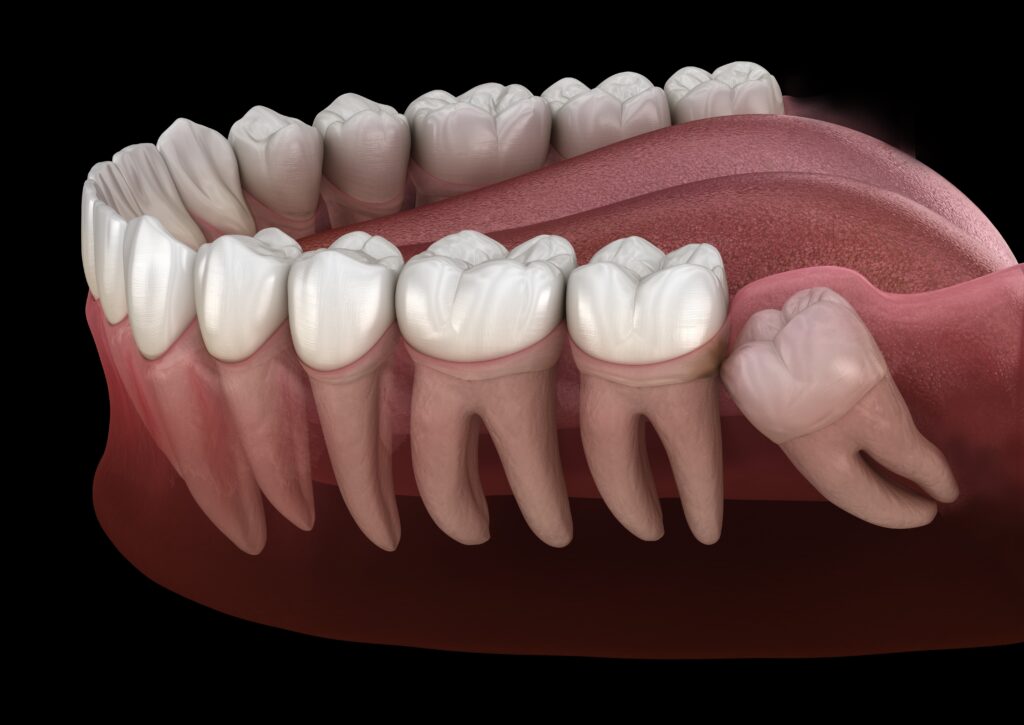
Surgical Extraction
Surgical extraction is necessary when wisdom teeth are impacted, partially erupted, or have complications that make simple extraction impractical. The patient may receive local anesthesia, intravenous sedation, or general anesthesia for comfort
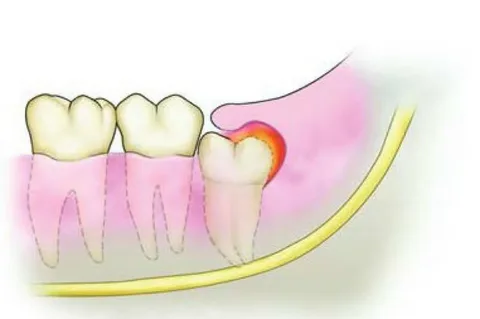
Soft Tissue Impaction Extraction
Soft tissue impaction occurs when the wisdom tooth is partially erupted, and part of it is still covered by gum tissue.An incision is made in the gum to expose the impacted tooth.

Complete Bony Impaction Extraction
In complete bony impaction, the wisdom tooth is fully encased in the jawbone and has not erupte. An incision is made, and a portion of the jawbone may need to be removed to access the tooth.
CAUSES OF WISDOM TEETH EXTRACTION
Wisdom teeth often do not have enough space to fully emerge or align properly in the mouth. This can lead to partial eruption or impaction. Impacted wisdom teeth can cause pain, swelling, and infection. They may also contribute to the misalignment of adjacent teeth. The mouth may not have sufficient space to accommodate the eruption of wisdom teeth.
Impaction
Wisdom teeth often do not have enough space to fully emerge or align properly in the mouth. This can lead to partial eruption or impaction
Overcrowding
The mouth may not have sufficient space to accommodate the eruption of wisdom teeth.
Misalignment
Wisdom teeth may emerge at an angle, causing them to be misaligned with neighboring teeth.
Cysts or Tumors
Cysts or tumors may develop around impacted wisdom teeth. Consequences: These growths can cause damage to the surrounding bone and teeth.
WISDOM TEETH EXTRACTION
Symptoms of Wisdom Teeth Extraction
- Difficulty Eating
- Stiffness
- Bad Breath
- Infection
- Bleeding
- Numbness or Tingling
How To Take Care Missing Teeth
Taking care of your oral health, especially when you have missing teeth, is important to prevent complications and maintain overall well-being. Here are some tips on how to care for missing teeth:
Floss Regularly: Floss between your remaining natural teeth and around dental appliances to remove plaque and prevent gum disease. If you have dental bridges or implants, use floss threaders or interdental brushes for effective cleaning.
Use an Antiseptic Mouthwash: Rinse your mouth with an antiseptic or fluoride mouthwash to help control bacteria and maintain oral hygiene. Consult your dentist for recommendations based on your specific needs.
Visit Your Dentist Regularly: Schedule regular dental check-ups, even if you have missing teeth. Your dentist can monitor the health of your remaining teeth, assess your gum health, and address any concerns promptly.
Consider Dental Appliances If you have missing teeth, your dentist may recommend dental appliances such as bridges, dentures, or implants to restore function and aesthetics. Follow your dentist’s instructions for care and maintenance of these appliances.
FAQs
Wisdom teeth often require extraction due to various reasons such as impaction, overcrowding, misalignment, or the potential for causing pain, infection, or damage to adjacent teeth.
Signs that may indicate the need for wisdom teeth removal include pain, swelling, tenderness in the back of the mouth, difficulty opening the mouth, gum inflammation around the wisdom teeth, and signs of infection.
Options for replacing missing teeth include dental implants, bridges, dentures, and implant-supported dentures. The choice depends on factors like the number of missing teeth, oral health, budget, and individual preferences.
Yes, impacted wisdom teeth can lead to pain, infection, damage to adjacent teeth, and the development of cysts or tumors.
While uncommon, complications may include dry socket, infection, nerve damage, or excessive bleeding. Following postoperative care guidelines helps minimize risks.
Not always, but extraction is often recommended when wisdom teeth pose a risk of complications or adversely impact oral health.
TREATMENTS
Wisdom Teeth Extraction Treatment in Lahore
Wisdom Teeth Extraction
Wisdom teeth often emerge in late adolescence or early adulthood, and their eruption can sometimes lead to various dental issues. Wisdom teeth extraction is a common dental procedure to address problems associated with these molars. Here is an overview of wisdom teeth extraction.These teeth are the last set of molars located at the back of the mouth and usually emerge in late adolescence or early adulthood. Wisdom teeth extraction may be recommended for various reasons:

- Functional Impairment
- Aesthetic Concerns
- Speech Difficulties
- Preventing Tooth Migration
- Preserving Bone Health
- Improving Oral Health
- List Item #1
- List Item #2
- List Item #3
Types Of Wisdom Teeth Extraction

Simple Extraction
This type of extraction is performed on wisdom teeth that have fully erupted and are visible in the mouth. The dentist or oral surgeon numbs the area around the tooth with a local anesthetic.

Surgical Extraction
Surgical extraction is necessary when wisdom teeth are impacted, partially erupted, or have complications that make simple extraction impractical. The patient may receive local anesthesia, intravenous sedation, or general anesthesia for comfort

Soft Tissue Impaction Extraction
Soft tissue impaction occurs when the wisdom tooth is partially erupted, and part of it is still covered by gum tissue.An incision is made in the gum to expose the impacted tooth.

Complete Bony Impaction Extraction
In complete bony impaction, the wisdom tooth is fully encased in the jawbone and has not erupte. An incision is made, and a portion of the jawbone may need to be removed to access the tooth.
CAUSES OF WISDOM TEETH EXTRACTION
Wisdom teeth often do not have enough space to fully emerge or align properly in the mouth. This can lead to partial eruption or impaction. Impacted wisdom teeth can cause pain, swelling, and infection. They may also contribute to the misalignment of adjacent teeth. The mouth may not have sufficient space to accommodate the eruption of wisdom teeth.
Impaction
Wisdom teeth often do not have enough space to fully emerge or align properly in the mouth. This can lead to partial eruption or impaction
Overcrowding
The mouth may not have sufficient space to accommodate the eruption of wisdom teeth.
Misalignment
Wisdom teeth may emerge at an angle, causing them to be misaligned with neighboring teeth.
Cysts or Tumors
Cysts or tumors may develop around impacted wisdom teeth. Consequences: These growths can cause damage to the surrounding bone and teeth.
WISDOM TEETH EXTRACTION
Symptoms of Wisdom Teeth Extraction
- Difficulty Eating
- Stiffness
- Bad Breath
- Infection
- Bleeding
- Numbness or Tingling
How To Take Care Missing Teeth
Taking care of your oral health, especially when you have missing teeth, is important to prevent complications and maintain overall well-being. Here are some tips on how to care for missing teeth:
Floss Regularly: Floss between your remaining natural teeth and around dental appliances to remove plaque and prevent gum disease. If you have dental bridges or implants, use floss threaders or interdental brushes for effective cleaning.
Use an Antiseptic Mouthwash: Rinse your mouth with an antiseptic or fluoride mouthwash to help control bacteria and maintain oral hygiene. Consult your dentist for recommendations based on your specific needs.
Visit Your Dentist Regularly: Schedule regular dental check-ups, even if you have missing teeth. Your dentist can monitor the health of your remaining teeth, assess your gum health, and address any concerns promptly.
Consider Dental Appliances If you have missing teeth, your dentist may recommend dental appliances such as bridges, dentures, or implants to restore function and aesthetics. Follow your dentist’s instructions for care and maintenance of these appliances.
FAQs
Wisdom teeth often require extraction due to various reasons such as impaction, overcrowding, misalignment, or the potential for causing pain, infection, or damage to adjacent teeth.
Signs that may indicate the need for wisdom teeth removal include pain, swelling, tenderness in the back of the mouth, difficulty opening the mouth, gum inflammation around the wisdom teeth, and signs of infection.
Options for replacing missing teeth include dental implants, bridges, dentures, and implant-supported dentures. The choice depends on factors like the number of missing teeth, oral health, budget, and individual preferences.
Yes, impacted wisdom teeth can lead to pain, infection, damage to adjacent teeth, and the development of cysts or tumors.
While uncommon, complications may include dry socket, infection, nerve damage, or excessive bleeding. Following postoperative care guidelines helps minimize risks.
Not always, but extraction is often recommended when wisdom teeth pose a risk of complications or adversely impact oral health.
TREATMENTS
Re - Root Canal Treatment in Lahore
Re - Root Canal
A re-root canal is a dental procedure that is performed to treat a tooth with a damaged or infected pulp (the innermost part of the tooth containing nerves and blood vessels). The pulp can become infected or inflamed due to various reasons, such as deep decay, repeated dental procedures on the same tooth, or traumatic injury.
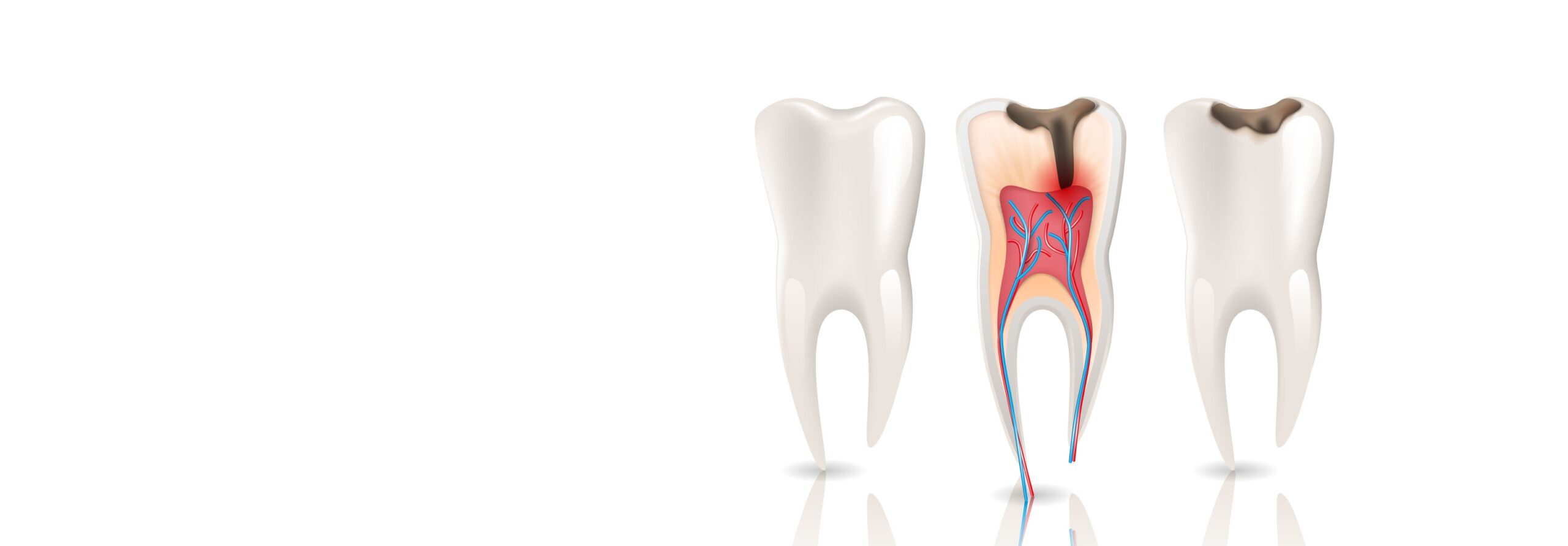
- Functional Impairment
- Aesthetic Concerns
- Speech Difficulties
- Preventing Tooth Migration
- Preserving Bone Health
- Improving Oral Health
- List Item #1
- List Item #2
- List Item #3
Types Of Re - Root Canal
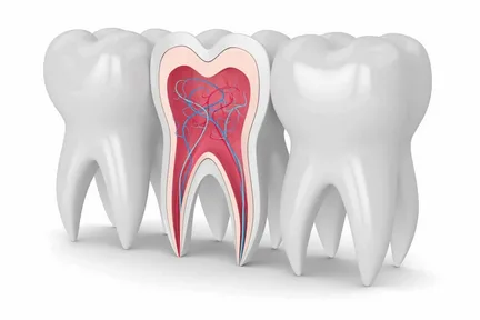
Crown Lengthening
In some cases, it might be necessary to adjust the gum and bone levels around a tooth to expose more of the tooth structure. This can provide better access for retreatment or the placement of a new crown.
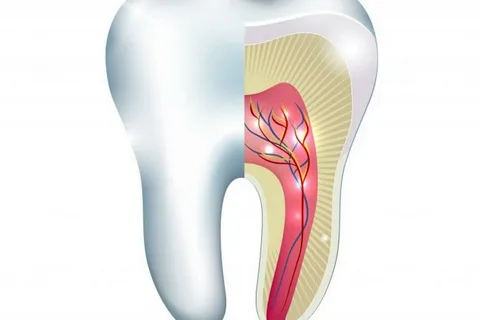
Endodontic Surgery
This is another surgical option where the dentist accesses the root tip through the gum tissue to remove any infection or cyst and then seals the end of the root.

Orthodontic Retainers
Custom-made retainers are used to maintain the alignment of teeth after orthodontic treatment, such as braces.Retainers are created specifically for each patient to preserve the corrected alignment of teeth. Retainers can be made from various materials, including acrylic and wire, depending on the orthodontic needs.
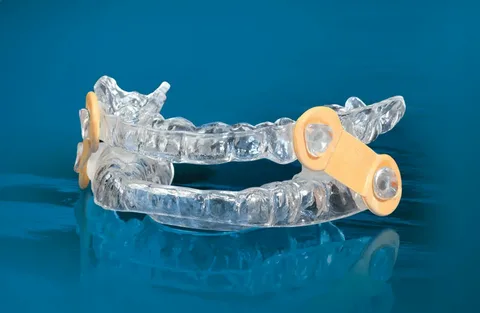
Snore Guards
Snore guards, also known as mandibular advancement devices, are custom-made mouthguards designed to address snoring and mild to moderate obstructive sleep apnea.Some snore guards allow for adjustment to reposition the lower jaw, helping to keep the airway open during sleep.
CAUSES OF RE - ROOT CANAL
This is a standard procedure where the dentist or endodontist reopens the tooth, removes the existing filling material, and thoroughly cleans and disinfects the canals before filling them again. It’s done to address issues like persistent infection or incomplete healing. Bacteria may persist or return after the initial root canal treatment, leading to a recurrent infection. This could occur if the canals were not thoroughly cleaned, or if new infection develops over time.
Cracked or Damaged Tooth
A tooth that has undergone a root canal may become cracked or damaged over time, leading to the need for retreatment.
Undetected Canals
The tooth's root canal system is intricate, and some canals may go unnoticed during the initial treatment.
Dental Crown Replacement
If a dental crown on the treated tooth is damaged or if there are issues with its fit, it may need to be replaced..
External Trauma or Fracture
Trauma to the tooth, such as a significant blow or fracture, can compromise the effectiveness of the initial root canal treatment and may require retreatment.
Re - Root Canal
Symptoms of Re - Root Canal
- Persistent Pain
- Swelling or Discomfort
- Pimple on the Gums
- Sensitivity to Temperature
- Bad Taste or Odor
- Swollen Lymph Nodes
How To Take Care Missing Teeth
Taking care of your oral health, especially when you have missing teeth, is important to prevent complications and maintain overall well-being. Here are some tips on how to care for missing teeth:
Floss Regularly: Floss between your remaining natural teeth and around dental appliances to remove plaque and prevent gum disease. If you have dental bridges or implants, use floss threaders or interdental brushes for effective cleaning.
Use an Antiseptic Mouthwash: Rinse your mouth with an antiseptic or fluoride mouthwash to help control bacteria and maintain oral hygiene. Consult your dentist for recommendations based on your specific needs.
Visit Your Dentist Regularly: Schedule regular dental check-ups, even if you have missing teeth. Your dentist can monitor the health of your remaining teeth, assess your gum health, and address any concerns promptly.
Consider Dental Appliances If you have missing teeth, your dentist may recommend dental appliances such as bridges, dentures, or implants to restore function and aesthetics. Follow your dentist’s instructions for care and maintenance of these appliances.
FAQs
Reendo, short for re-endodontic treatment, refers to a dental procedure where a previously treated tooth undergoes additional root canal therapy to address issues like persistent infection or new problems.
Reasons for reendo treatment include persistent or recurrent infection, incomplete cleaning in the initial root canal, new decay, or complications with the initial treatment.
Athletes involved in contact sports, individuals prone to teeth grinding (bruxism), and those with jaw issues can benefit from custom-made mouthguards.
The procedure involves reopening the tooth, removing existing filling material, cleaning and disinfecting the canals, and then refilling and sealing the tooth
Recovery time varies, but patients typically experience some discomfort for a few days. Follow-up appointments may be needed to monitor healing.
Maintaining good oral hygiene, attending regular dental check-ups, and addressing dental issues promptly can help prevent the need for reendo root canal treatment.
TREATMENTS
Night Grinding Treatment in Lahore
Night Grinding
Night grinding, also known as bruxism, is a common condition where individuals grind or clench their teeth during sleep. This involuntary behavior can have various causes and consequences, impacting both oral health and overall well-being. Here’s a detailed description of night grinding
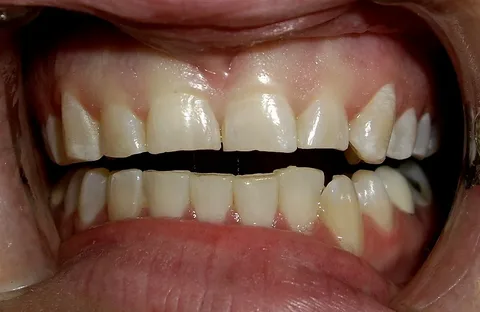
- Functional Impairment
- Aesthetic Concerns
- Speech Difficulties
- Preventing Tooth Migration
- Preserving Bone Health
- Improving Oral Health
- List Item #1
- List Item #2
- List Item #3
Types Of Night Grinding

Primary Bruxism
Primary bruxism refers to the condition where teeth grinding or clenching occurs without any apparent underlying medical or dental cause.

Secondary Bruxism
Secondary bruxism is linked to identifiable factors, such as medical conditions or the use of certain medications.
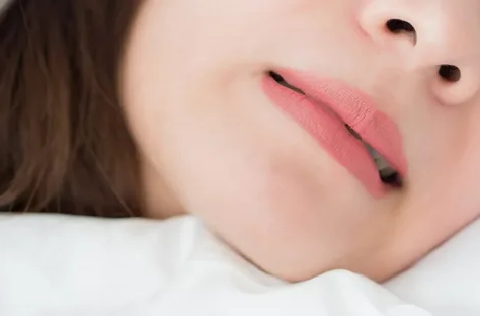
Awake Bruxism
Some individuals may exhibit teeth grinding or clenching during waking hours, often in response to stress or tension.

Sleep Bruxism
Sleep bruxism occurs specifically during sleep, and individuals may be unaware of the behavior unless they experience symptoms such as jaw pain or tooth sensitivity.
CAUSES OF GUMS DEPIGMENTATION
Night grinding is a multifactorial condition with various causes and potential consequences. Early diagnosis, intervention, and preventive measures can help manage symptoms, protect oral health, and improve overall quality of life. Individuals experiencing symptoms of night grinding should consult with a dentist or healthcare professional for a thorough evaluation and appropriate management strategies
Stress and Anxiety
Psychological factors, such as stress and anxiety, are often linked to bruxism.
Sleep Disorders
Bruxism is sometimes associated with certain sleep disorders, such as sleep apnea.
Medications
Some medications, particularly those affecting the central nervous system.
Lifestyle Factors
Consumption of stimulants (caffeine, nicotine), alcohol, or recreational drugs can contribute to night grinding.
Night Grinding
Symptoms of Night Grinding
- Morning Jaw Pain
- Headaches
- Earaches
- TMJ Disorders
- Disrupted Sleep
- Facial Pain
How To Take Care Missing Teeth
Taking care of your oral health, especially when you have missing teeth, is important to prevent complications and maintain overall well-being. Here are some tips on how to care for missing teeth:
Floss Regularly: Floss between your remaining natural teeth and around dental appliances to remove plaque and prevent gum disease. If you have dental bridges or implants, use floss threaders or interdental brushes for effective cleaning.
Use an Antiseptic Mouthwash: Rinse your mouth with an antiseptic or fluoride mouthwash to help control bacteria and maintain oral hygiene. Consult your dentist for recommendations based on your specific needs.
Visit Your Dentist Regularly: Schedule regular dental check-ups, even if you have missing teeth. Your dentist can monitor the health of your remaining teeth, assess your gum health, and address any concerns promptly.
Consider Dental Appliances If you have missing teeth, your dentist may recommend dental appliances such as bridges, dentures, or implants to restore function and aesthetics. Follow your dentist’s instructions for care and maintenance of these appliances.
FAQs
Bruxism is a condition characterized by the grinding or clenching of teeth, especially during sleep, leading to potential oral health issues.
Common symptoms include jaw pain, headaches, tooth sensitivity, and excessive wear on the teeth.
Bruxism can be caused by stress, anxiety, misaligned teeth, sleep disorders, or certain medications.
Diagnosis involves a dental examination, discussion of symptoms, and, in some cases, monitoring jaw and muscle activity during sleep.
Yes, bruxism can cause dental issues such as tooth wear, fractures, and damage to dental restorations.
A night guard is a dental appliance that helps protect teeth from the effects of grinding by providing a cushioning barrier.
TREATMENTS
Implant And Aesthetics Treatment in Lahore
Implant And Aesthetics
Dental implants have revolutionized the field of dentistry, offering a sophisticated and long-term solution for the replacement of missing teeth. Beyond their functional benefits, dental implants significantly contribute to enhancing the aesthetics of a patient’s smile.
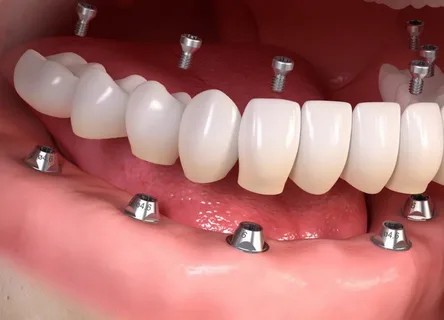
- Functional Impairment
- Aesthetic Concerns
- Speech Difficulties
- Preventing Tooth Migration
- Preserving Bone Health
- Improving Oral Health
- List Item #1
- List Item #2
- List Item #3
Implant And Aesthetics
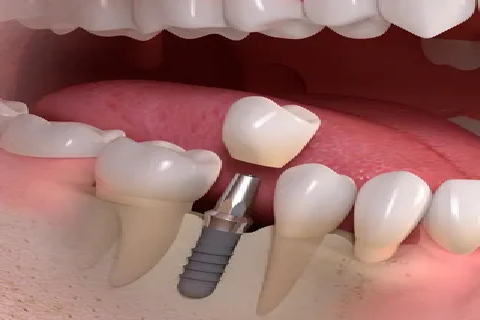
Single Tooth Implants
Used to replace a single missing tooth. Designed to replace multiple adjacent teeth. Provide stability for a full set of dentures.
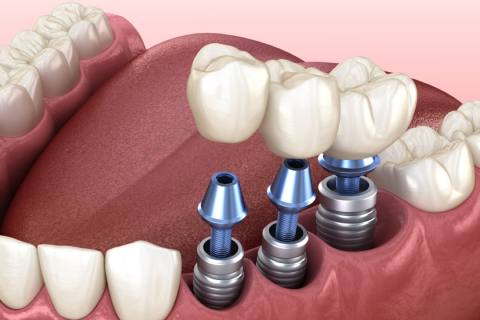
Aesthetic Benefits of Dental Implants
Dental implants closely mimic the appearance of natural teeth. The replacement teeth whether crowns, bridges.
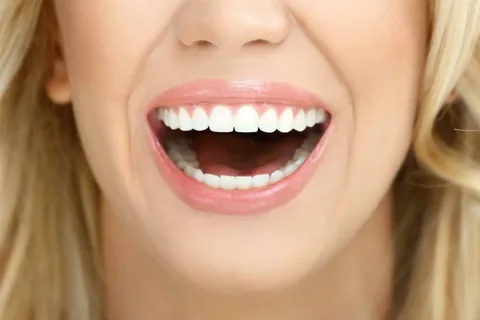
Natural-Looking Appearance
Dental implants closely mimic the appearance of natural teeth. The replacement teeth, whether crowns, bridges, or dentures, are customized to match the color, shape, and size of adjacent natural teeth.
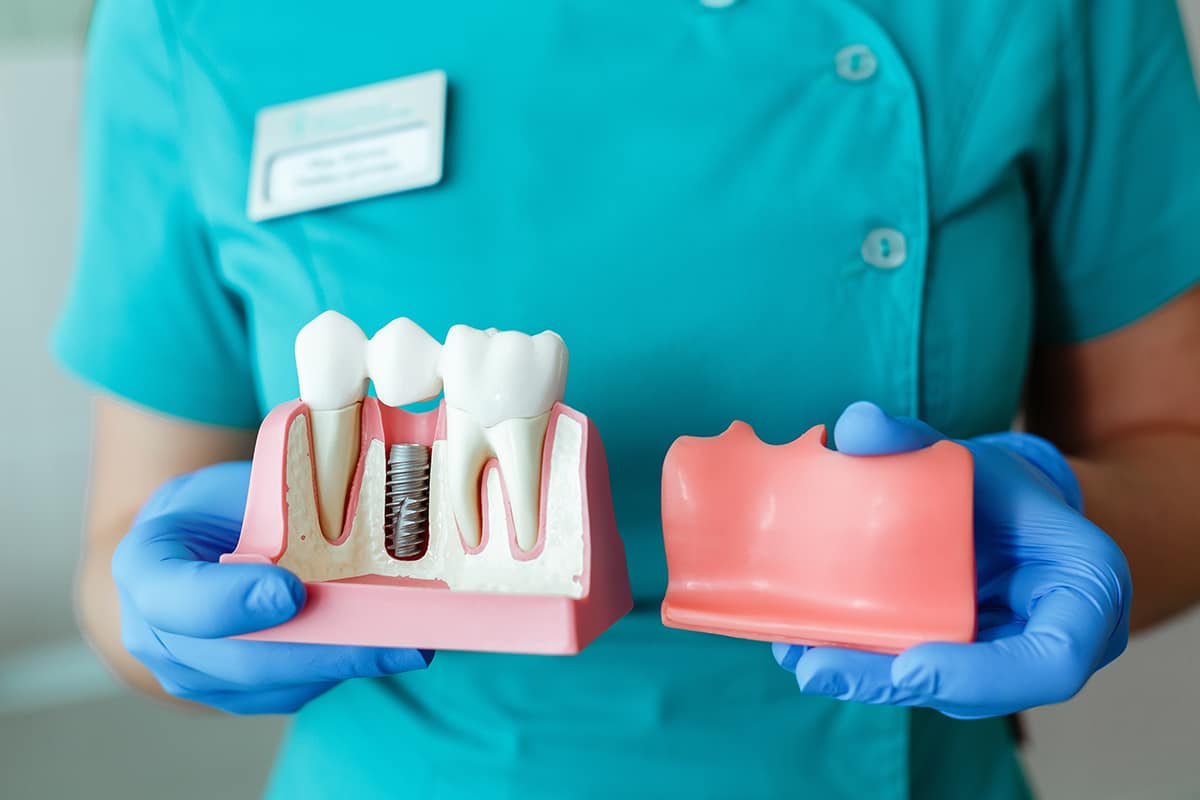
Comprehensive Treatment Planning
Aesthetic considerations are integral to the planning of dental implant treatments. Dentists work closely with patients to achieve not only functional success but also an aesthetically pleasing outcome.
CAUSES OF IMPLANT AND AESTHETICS
Dental implants are a treatment option for individuals with missing teeth, and their placement is not caused by specific factors but rather by the desire to restore oral function and aesthetics.
Improved Stability
Individuals seeking enhanced stability for replacement teeth
Preservation of Bone Structure
Dental implants help prevent bone loss in the jaw that often occurs after tooth extraction.
Enhanced Chewing Function
Implants restore proper biting and chewing function.
Tooth Discoloration
Stained or discolored teeth may prompt individuals to seek teeth whitening.
Implant And Aesthetics
Symptoms of Implant And Aesthetics
- Changes in Tooth Color
- Temporary Changes
- Gum Contouring Sensations
- Healing Time
- Surgical Discomfort
- Changes in Gum Color
How To Take Care Missing Teeth
Taking care of your oral health, especially when you have missing teeth, is important to prevent complications and maintain overall well-being. Here are some tips on how to care for missing teeth:
Floss Regularly: Floss between your remaining natural teeth and around dental appliances to remove plaque and prevent gum disease. If you have dental bridges or implants, use floss threaders or interdental brushes for effective cleaning.
Use an Antiseptic Mouthwash: Rinse your mouth with an antiseptic or fluoride mouthwash to help control bacteria and maintain oral hygiene. Consult your dentist for recommendations based on your specific needs.
Visit Your Dentist Regularly: Schedule regular dental check-ups, even if you have missing teeth. Your dentist can monitor the health of your remaining teeth, assess your gum health, and address any concerns promptly.
Consider Dental Appliances If you have missing teeth, your dentist may recommend dental appliances such as bridges, dentures, or implants to restore function and aesthetics. Follow your dentist’s instructions for care and maintenance of these appliances.
FAQs
Dental implants enhance smile aesthetics by providing a natural-looking and permanent solution for replacing missing teeth, improving overall facial harmony.
Yes, dental implants can complement orthodontic treatments, contributing to improved overall smile aesthetics and alignment.
Healthy and well-contoured gums are crucial for the success of dental implants, and procedures like gum contouring can enhance overall aesthetic appearance.
Zirconia implants, being tooth-colored and biocompatible, are an excellent choice for achieving natural-looking aesthetics in dental restorations.
Size and shape of dental implants should be carefully chosen to match a patient's facial features, ensuring a personalized and aesthetically pleasing smile makeover.
Porcelain crowns mimic natural tooth enamel, ensuring dental implants seamlessly blend with surrounding teeth for an aesthetically pleasing result.
TREATMENTS
Invisible Braces Treatment in Lahore
Invisible Braces
Invisible braces refer to orthodontic devices that are designed to straighten teeth without the traditional use of metal brackets and wires. These types of braces are often preferred by individuals who desire a more discreet and aesthetically pleasing option for orthodontic treatment. Here are some key points about invisible braces
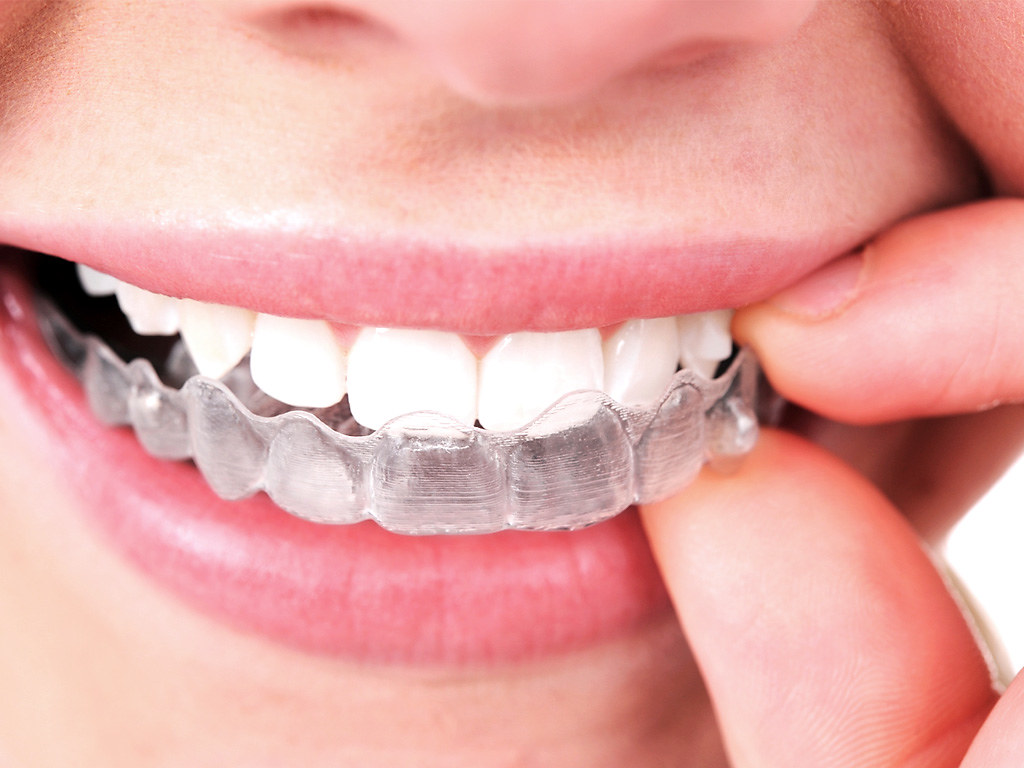
- Functional Impairment
- Aesthetic Concerns
- Speech Difficulties
- Preventing Tooth Migration
- Preserving Bone Health
- Improving Oral Health
- List Item #1
- List Item #2
- List Item #3
Types Of Invisible Braces
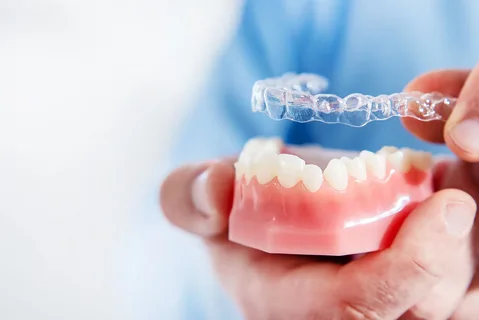
Clear Aligners
Clear aligners, such as those provided by Invisalign, are a popular form of invisible braces. They are custom-made, removable trays that gradually move teeth into their desired positions.
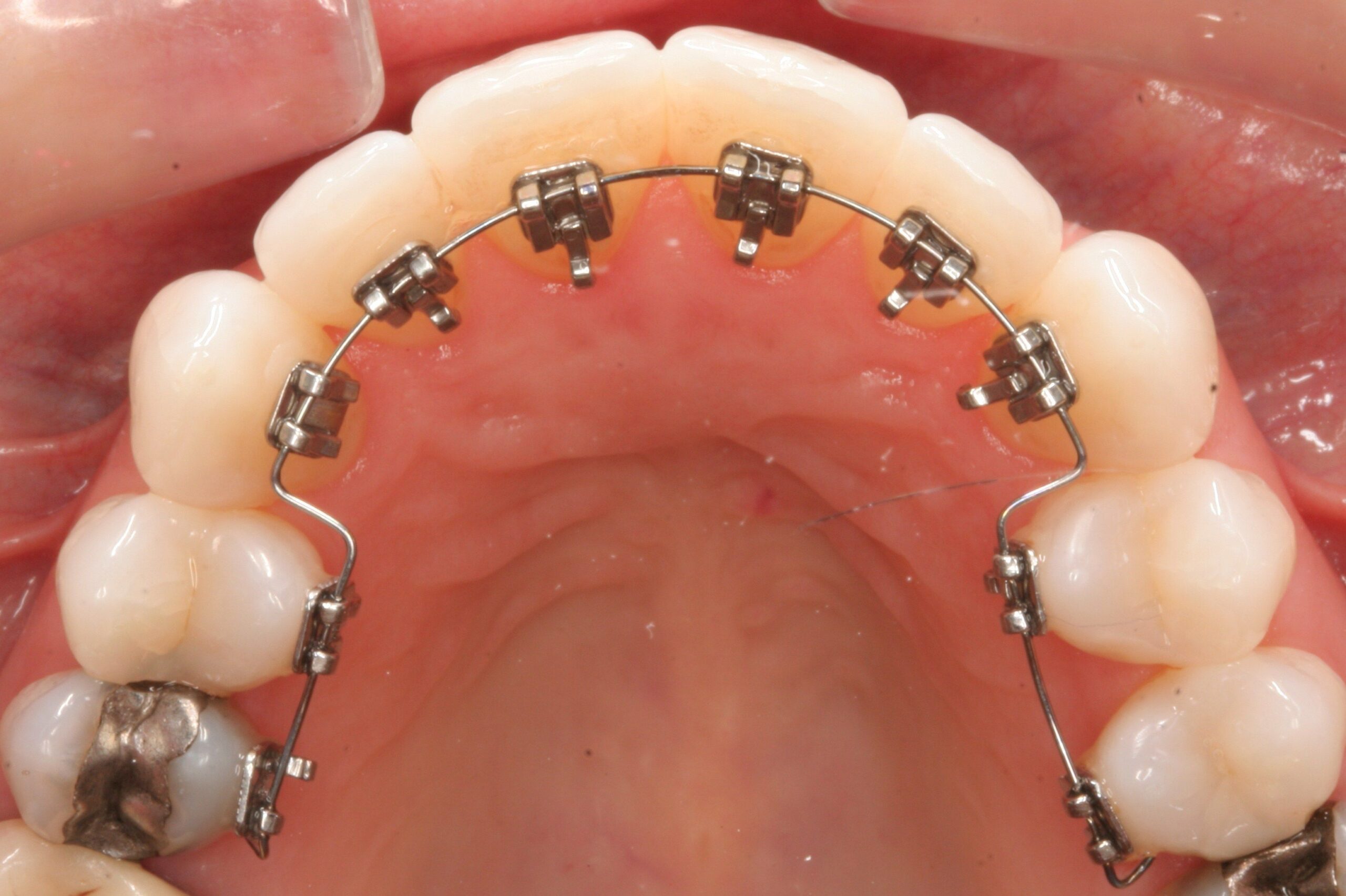
Lingual Braces
Lingual braces are traditional braces placed on the backside (lingual side) of the teeth, making them virtually invisible from the front.
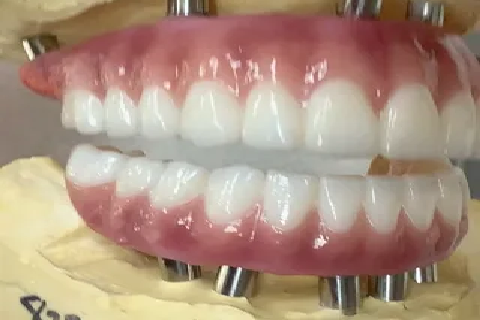
High Translucency Zirconia
High Translucency Zirconia is designed to enhance the translucency of the crown, making it more aesthetically pleasing. It is often used for crowns in visible areas of the mouth.
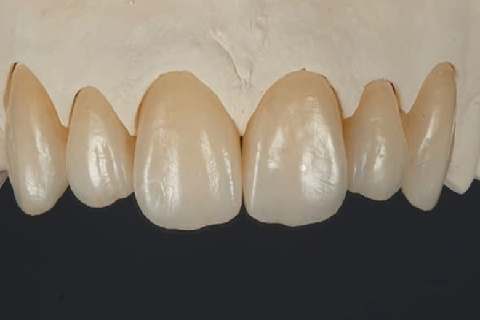
Bruxzir Solid Zirconia
Bruxzir Solid Zirconia is a specific brand of zirconia crowns known for its high strength and resistance to fractures. It is often used in cases where strength is a primary concern.
CAUSES OF INVISIBLE BRACES
Invisible braces, such as clear aligners (e.g., Invisalign) and lingual braces, are not caused by specific factors. Individuals may be concerned about the visibility of traditional braces, especially in professional or social situations. Invisible braces, such as clear aligners or lingual braces, address aesthetic concerns by offering a more discreet and less noticeable treatment option.
Professional and Social Considerations
Some individuals, particularly adults, may hesitate to undergo orthodontic treatment.
Removability Preferences
Some individuals prefer orthodontic devices that are removable for eating, special occasions, or easier oral hygiene.
Personal Comfort
Some individuals may prefer orthodontic treatments that are known for their comfort and reduced impact on daily activities.
Individual Treatment Goals
Individuals may have specific goals for their orthodontic treatment, such as achieving a straighter smile without the visibility of traditional braces.
Invisible Braces
Symptoms of Invisible Braces
- Initial Discomfort
- Pressure and Tightness
- Speech Adjustments
- Saliva Production
- Removal and Insertion Challenges
- Mouth Sores or Irritation
How To Take Care Missing Teeth
Taking care of your oral health, especially when you have missing teeth, is important to prevent complications and maintain overall well-being. Here are some tips on how to care for missing teeth:
Floss Regularly: Floss between your remaining natural teeth and around dental appliances to remove plaque and prevent gum disease. If you have dental bridges or implants, use floss threaders or interdental brushes for effective cleaning.
Use an Antiseptic Mouthwash: Rinse your mouth with an antiseptic or fluoride mouthwash to help control bacteria and maintain oral hygiene. Consult your dentist for recommendations based on your specific needs.
Visit Your Dentist Regularly: Schedule regular dental check-ups, even if you have missing teeth. Your dentist can monitor the health of your remaining teeth, assess your gum health, and address any concerns promptly.
Consider Dental Appliances If you have missing teeth, your dentist may recommend dental appliances such as bridges, dentures, or implants to restore function and aesthetics. Follow your dentist’s instructions for care and maintenance of these appliances.
FAQs
Invisible braces refer to orthodontic devices, such as clear aligners, designed to straighten teeth discreetly without the visibility of traditional braces.
Clear aligners work by applying controlled forces to gradually move teeth into their desired positions. Each set of aligners is worn for a specified period before moving on to the next set.
Clear aligners are typically made from a clear, BPA-free plastic material that is custom-fitted to the patient's teeth.
Clear aligners should be worn for 20 to 22 hours per day, removing them only for eating, drinking (except water), and oral hygiene.
Aligners are typically changed every one to two weeks, as directed by the orthodontist, to progress through the stages of tooth movement.
Clear aligners are effective for a variety of orthodontic cases, but they may not be suitable for severe or complex cases. Your orthodontist can determine the best option based on your specific needs.
TREATMENTS
Dental Braces Treatment in Lahore
Dental Braces
Dental braces, also known simply as braces, are orthodontic devices used to correct the alignment of teeth and jaws. They are designed to address various orthodontic issues, such as misaligned teeth, crowded teeth, gaps between teeth, and bite irregularities. Braces work by applying continuous pressure to the teeth, gradually moving them into the desired position. Here is a comprehensive description of dental braces
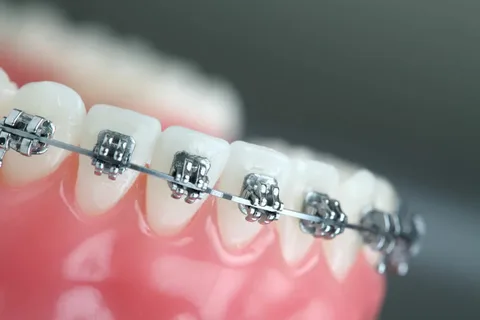
- Functional Impairment
- Aesthetic Concerns
- Speech Difficulties
- Preventing Tooth Migration
- Preserving Bone Health
- Improving Oral Health
- List Item #1
- List Item #2
- List Item #3
Types Of Dental Braces
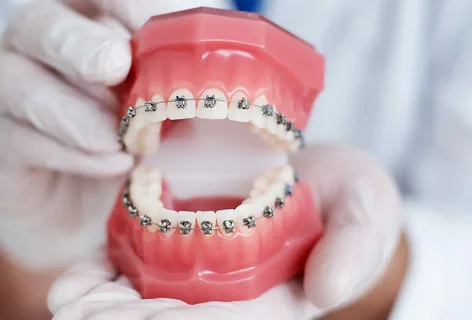
Traditional Metal Braces
Traditional metal braces consist of stainless steel brackets affixed to the front surface of each tooth and connected by metal wires. Effective for a wide range of orthodontic issues, durable, and typically more affordable.
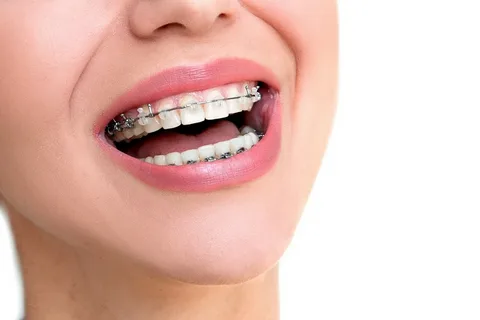
Ceramic Braces
Ceramic braces use tooth-colored or clear brackets, making them less noticeable than traditional metal braces. The wires may also be tooth-colored

High Translucency Zirconia
High Translucency Zirconia is designed to enhance the translucency of the crown, making it more aesthetically pleasing. It is often used for crowns in visible areas of the mouth.

Bruxzir Solid Zirconia
Bruxzir Solid Zirconia is a specific brand of zirconia crowns known for its high strength and resistance to fractures. It is often used in cases where strength is a primary concern.
CAUSES OF DENTAL BRACES
Dental braces are not caused by a specific factor; instead, they are a dental treatment used to address various orthodontic issues. Braces are recommended by orthodontists to correct problems related to the alignment of teeth and jaws.
Crowded Teeth
Insufficient space in the jaw for teeth to align properly can lead to crowding.
Overlapping Teeth
Overlapping teeth may occur due to genetics, inadequate jaw size, or the loss of adjacent teeth.
Protruding Teeth
Protruding or "buck" teeth may result from a discrepancy between the upper and lower jaw sizes.
Jaw Misalignment
A dysfunctional bite, where the upper and lower jaws do not align properly, can be caused by genetic factors or childhood habits.
Dental Braces
Symptoms of Dental Braces
- Discomfort or Soreness
- Tightness
- Difficulty Eating
- Speech Changes
- Mouth Sores or Irritation
- Wire or Bracket Movement
How To Take Care Missing Teeth
Taking care of your oral health, especially when you have missing teeth, is important to prevent complications and maintain overall well-being. Here are some tips on how to care for missing teeth:
Floss Regularly: Floss between your remaining natural teeth and around dental appliances to remove plaque and prevent gum disease. If you have dental bridges or implants, use floss threaders or interdental brushes for effective cleaning.
Use an Antiseptic Mouthwash: Rinse your mouth with an antiseptic or fluoride mouthwash to help control bacteria and maintain oral hygiene. Consult your dentist for recommendations based on your specific needs.
Visit Your Dentist Regularly: Schedule regular dental check-ups, even if you have missing teeth. Your dentist can monitor the health of your remaining teeth, assess your gum health, and address any concerns promptly.
Consider Dental Appliances If you have missing teeth, your dentist may recommend dental appliances such as bridges, dentures, or implants to restore function and aesthetics. Follow your dentist’s instructions for care and maintenance of these appliances.
FAQs
Regular dental check-ups are essential for early detection of oral issues, preventive care, and maintaining overall oral health.
It is recommended to brush teeth at least twice a day, in the morning and before bedtime, using fluoride toothpaste.
Dental floss is used to clean between teeth and below the gumline, where toothbrushes may not reach, preventing plaque buildup and cavities.
Preventing cavities involves maintaining good oral hygiene practices, including regular brushing, flossing, limiting sugary foods, and attending dental check-ups.
Dental X-rays help dentists identify issues not visible to the naked eye, such as cavities between teeth, impacted teeth, and bone health.
Fluoride helps strengthen tooth enamel, making it more resistant to decay. It is often found in toothpaste, mouthwash, and some municipal water supplies.
TREATMENTS
Zirconium Crown Treatment in Lahore
Zirconium Crown
A zirconium crown is a type of dental crown that is made from zirconia, a strong and durable ceramic material. Zirconia is a crystalline oxide of the metal zirconium and is commonly used in dentistry for various dental restorations, including crowns, bridges, and dental implants.
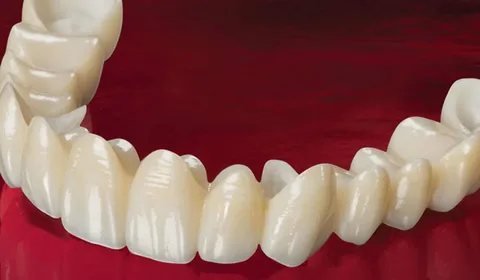
- Functional Impairment
- Aesthetic Concerns
- Speech Difficulties
- Preventing Tooth Migration
- Preserving Bone Health
- Improving Oral Health
- List Item #1
- List Item #2
- List Item #3
Types Of Zirconium Crown

Full Contour Zirconia
Full Contour Zirconia crowns are made entirely of zirconia and are known for their strength and durability. They have a monolithic structure, meaning the entire crown is composed of the same material.

Layered Zirconia
Layered zirconia crowns have a zirconia core covered with layers of porcelain or ceramic material. This provides a more lifelike appearance, mimicking the translucency and color variations of natural teeth.

High Translucency Zirconia
High Translucency Zirconia is designed to enhance the translucency of the crown, making it more aesthetically pleasing. It is often used for crowns in visible areas of the mouth.

Bruxzir Solid Zirconia
Bruxzir Solid Zirconia is a specific brand of zirconia crowns known for its high strength and resistance to fractures. It is often used in cases where strength is a primary concern.
CAUSES OF ZIRCONIUM CROWN
zirconium crown is not caused by a particular condition or factor; instead, it is a dental treatment chosen by dentists to address various situations where a dental crown is deemed necessary. Zirconium crowns are used as a restorative solution for damaged or compromised teeth. Here are common scenarios that may lead to the placement of a zirconium crown:
Tooth Decay
A zirconium crown is used to restore the structure and function of the decayed tooth..
Root Canal Treatment
Teeth that have undergone root canal treatment may be weakened and require additional support.
Cosmetic Enhancement
Aesthetic concerns, such as discolored, misshapen, or poorly aligned teeth.
Dental Implant Restoration
Zirconium crowns can be placed on dental implants to provide a functional and natural-looking replacement for missing teeth.
Zirconium Crown
Symptoms of Zirconium Crown
- Large Cavities or Decay
- Weakened Tooth Structure
- Cosmetic Concerns
- Dental Implant Restoration
- Dental Injuries and Trauma
- Replacement of Old Crowns
How To Take Care Missing Teeth
Taking care of your oral health, especially when you have missing teeth, is important to prevent complications and maintain overall well-being. Here are some tips on how to care for missing teeth:
Floss Regularly: Floss between your remaining natural teeth and around dental appliances to remove plaque and prevent gum disease. If you have dental bridges or implants, use floss threaders or interdental brushes for effective cleaning.
Use an Antiseptic Mouthwash: Rinse your mouth with an antiseptic or fluoride mouthwash to help control bacteria and maintain oral hygiene. Consult your dentist for recommendations based on your specific needs.
Visit Your Dentist Regularly: Schedule regular dental check-ups, even if you have missing teeth. Your dentist can monitor the health of your remaining teeth, assess your gum health, and address any concerns promptly.
Consider Dental Appliances If you have missing teeth, your dentist may recommend dental appliances such as bridges, dentures, or implants to restore function and aesthetics. Follow your dentist’s instructions for care and maintenance of these appliances.
FAQs
A zirconium crown is a dental restoration made from zirconia, a strong and durable ceramic material, used to restore and protect damaged or compromised teeth.
A dentist may recommend a zirconium crown to address various dental issues such as tooth decay, fractures, large cavities, cosmetic concerns, or as a restoration for dental implants.
Yes, zirconium crowns are suitable for both front and back teeth. Their natural appearance and ability to be color-matched make them a popular choice for visible areas in the mouth.
Zirconium crowns often require less tooth reduction compared to traditional metal crowns, allowing for a more conservative and minimally invasive tooth preparation.
Yes, zirconium crowns can be used to replace older crowns, providing improved durability and aesthetics. They are particularly suitable for cases where a more robust restoration is desired.
With proper oral hygiene and regular dental care, zirconium crowns can last for many years. Their durability contributes to their long lifespan.
TREATMENTS
Gum Depigmentation Treatment in Lahore
Gum Depigmentation
Gum depigmentation, also known as gum bleaching or gingival depigmentation, is a cosmetic dental procedure designed to reduce or eliminate the appearance of dark or pigmented gums. The dark coloration of the gums is often caused by an excess of melanin, the pigment responsible for skin and hair color.
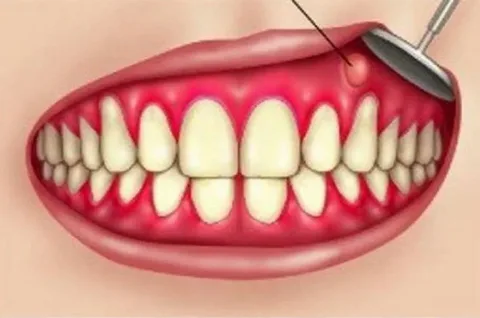
- Functional Impairment
- Aesthetic Concerns
- Speech Difficulties
- Preventing Tooth Migration
- Preserving Bone Health
- Improving Oral Health
- List Item #1
- List Item #2
- List Item #3
Types Of Gum Depigmentation
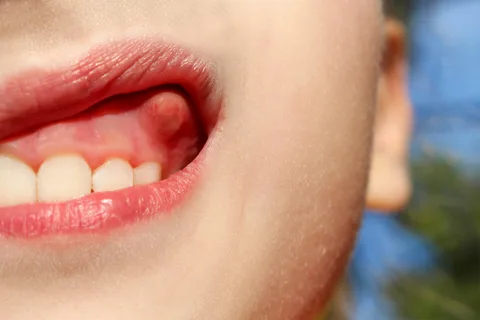
Topical Anesthesia
To ensure patient comfort, a topical anesthetic is applied to the gums to numb the treatment area.

Laser Gum Depigmentation
A dental laser is used to remove the pigmented layer of the gums. This is a precise and effective method that also helps in sealing blood vessels, reducing bleeding, and promoting faster healing.

Surgical Depigmentation
In this method, the dentist uses a scalpel or laser to remove the pigmented layer from the gums. This technique may be preferred in cases where there is a significant amount of pigmentation to be removed.

Chemical Depigmentation
Certain chemical agents, such as a concentrated acid solution, may be applied to the gum tissue to peel away the pigmented layer. This method requires careful application to avoid damage to surrounding tissues.
CAUSES OF GUMS DEPIGMENTATION
Dentistry focused on providing oral health care to children. Pediatric dentistry is driven by the recognition of the unique needs and considerations associated with the dental care of infants, children, and adolescents.if you meant to inquire about the factors that lead to the need for pediatric dentistry or the common issues addressed in this field,
Ethnicity
Gum pigmentation can vary among individuals of different ethnic backgrounds.
Hormonal Changes
Hormonal changes, such as those occurring during puberty, pregnancy, pigmentation.
Smoking
Smoking or tobacco use is associated with changes in oral pigmentation.
Medications
Some medications may cause changes in pigmentation as a side effect.
Gums Depigmentation
Symptoms of Gums Depigmentation
- Discomfort or Sensitivity
- Swelling
- Gum Disease
- Healing Time
- Dental Injuries and Trauma
- Changes in Gum Color
How To Take Care Missing Teeth
Taking care of your oral health, especially when you have missing teeth, is important to prevent complications and maintain overall well-being. Here are some tips on how to care for missing teeth:
Floss Regularly: Floss between your remaining natural teeth and around dental appliances to remove plaque and prevent gum disease. If you have dental bridges or implants, use floss threaders or interdental brushes for effective cleaning.
Use an Antiseptic Mouthwash: Rinse your mouth with an antiseptic or fluoride mouthwash to help control bacteria and maintain oral hygiene. Consult your dentist for recommendations based on your specific needs.
Visit Your Dentist Regularly: Schedule regular dental check-ups, even if you have missing teeth. Your dentist can monitor the health of your remaining teeth, assess your gum health, and address any concerns promptly.
Consider Dental Appliances If you have missing teeth, your dentist may recommend dental appliances such as bridges, dentures, or implants to restore function and aesthetics. Follow your dentist’s instructions for care and maintenance of these appliances.
FAQs
Gum depigmentation is a cosmetic dental procedure designed to reduce or eliminate the dark pigmentation of the gums, often caused by an excess of melanin.
Some individuals seek gum depigmentation for aesthetic reasons, as they may be dissatisfied with the appearance of dark or pigmented gums and desire a more uniform and aesthetically pleasing smile.
Pigmented gums are generally healthy and not a sign of poor oral health. Gum depigmentation is a cosmetic procedure and is not performed for medical reasons.
The primary cause of pigmented gums is an overproduction of melanin, the pigment responsible for skin and hair color. Factors such as genetics, ethnicity, hormonal changes, smoking, medications, and inflammation can contribute to gum pigmentation.
Gum depigmentation is usually well-tolerated, and discomfort is typically minimal. Topical anesthesia is often applied to numb the treatment area and ensure patient comfort.
The duration of the procedure varies depending on the chosen method and the extent of pigmentation. Generally, it can be completed within a relatively short time, often in a single appointment.
TREATMENTS
Kids Dentistry Treatment in Lahore
Kids Dentistry
Kids dentistry, also known as pediatric dentistry, is a specialized branch of dentistry that focuses on the oral health and dental care of children, from infancy through adolescence. Pediatric dentists are dental professionals who have undergone additional training to address the unique needs and challenges associated with the dental care of young patients

- Functional Impairment
- Aesthetic Concerns
- Speech Difficulties
- Preventing Tooth Migration
- Preserving Bone Health
- Improving Oral Health
- List Item #1
- List Item #2
- List Item #3
Types Of Kids Dentistry
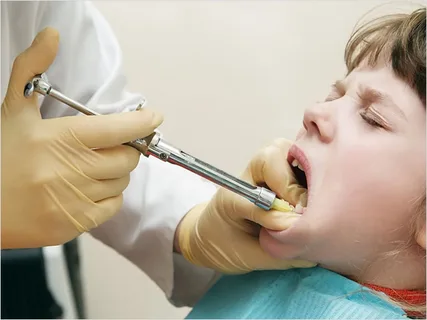
Pediatric Dental Anesthesiology
Pediatric dental anesthesiologists are trained to administer anesthesia to children undergoing dental procedures, ensuring their safety and comfort during treatments.

Pediatric Orthodontics
Pediatric orthodontics focuses on the diagnosis and treatment of malocclusions (misalignments of teeth and jaws) in children. Orthodontic interventions may include braces, aligners, and other appliances to correct dental and facial irregularities.
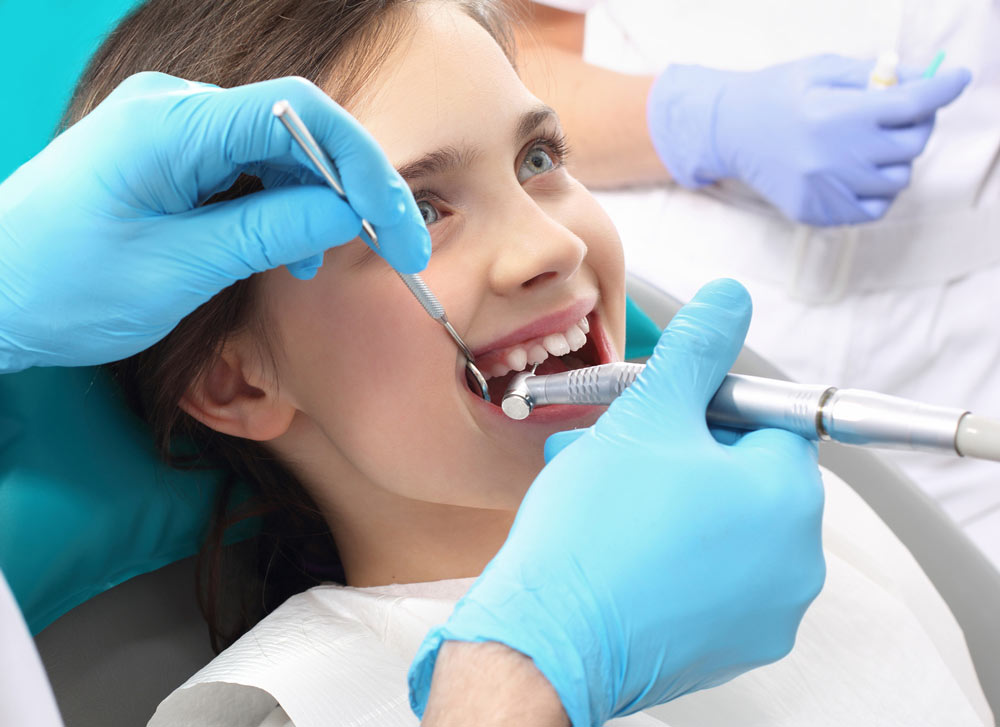
Pediatric Endodontics
Pediatric endodontists specialize in treating dental pulp and nerve-related issues in children. This may involve procedures such as root canal therapy for baby teeth to preserve them until they naturally fall out

Pediatric Dental Hygiene
Dental hygienists specializing in pediatric dentistry work with children to provide preventive care, including cleanings, fluoride treatments, and education on proper oral hygiene practices.
CAUSES OF KIDS DENTISTRY
Dentistry focused on providing oral health care to children. Pediatric dentistry is driven by the recognition of the unique needs and considerations associated with the dental care of infants, children, and adolescents.if you meant to inquire about the factors that lead to the need for pediatric dentistry or the common issues addressed in this field,
Early Childhood Caries
ECC is a severe form of tooth decay in young children, often linked to prolonged bottle-feeding, sugary snacks, and inadequate oral hygiene practices.
Injuries and Trauma
Accidents or sports-related injuries can lead to dental trauma in children, requiring prompt attention and treatment by pediatric dentists or oral surgeons.
Teething Discomfort
Pediatric dentists assist parents in managing teething discomfort in infants and toddlers, offering advice on teething toys and safe relief methods.
Preventive Care and Education
Pediatric dentistry focuses on preventive care, including regular check-ups, cleanings, and education on proper oral hygiene practices to prevent future dental issues.
KIDS DENTISTRY
Symptoms of Kids Dentistry
- Early Childhood Caries
- Malocclusions
- Gum Disease
- Tooth Eruption Issues
- Dental Injuries and Trauma
- Teething Discomfort
How To Take Care Missing Teeth
Taking care of your oral health, especially when you have missing teeth, is important to prevent complications and maintain overall well-being. Here are some tips on how to care for missing teeth:
Floss Regularly: Floss between your remaining natural teeth and around dental appliances to remove plaque and prevent gum disease. If you have dental bridges or implants, use floss threaders or interdental brushes for effective cleaning.
Use an Antiseptic Mouthwash: Rinse your mouth with an antiseptic or fluoride mouthwash to help control bacteria and maintain oral hygiene. Consult your dentist for recommendations based on your specific needs.
Visit Your Dentist Regularly: Schedule regular dental check-ups, even if you have missing teeth. Your dentist can monitor the health of your remaining teeth, assess your gum health, and address any concerns promptly.
Consider Dental Appliances If you have missing teeth, your dentist may recommend dental appliances such as bridges, dentures, or implants to restore function and aesthetics. Follow your dentist’s instructions for care and maintenance of these appliances.
FAQs
Pediatric dentistry is a specialized field of dentistry that focuses on the oral health of infants, children, and adolescents. Pediatric dentists are trained to address the unique needs of young patients.
The American Academy of Pediatric Dentistry recommends that a child should have their first dental visit by their first birthday or within six months of the eruption of their first tooth.
Baby teeth are crucial for proper chewing, speech development, and guiding the eruption of permanent teeth. They also contribute to the overall development of the jaw and facial structure.
Fluoride helps prevent tooth decay by strengthening tooth enamel. Pediatric dentists may recommend fluoride treatments or prescribe fluoride supplements based on the child's individual needs.
Parents can promote good oral hygiene by teaching children to brush and floss regularly, limiting sugary snacks and beverages, and scheduling regular dental check-ups.
Orthodontics addresses the alignment of teeth and jaws. Early orthodontic evaluation can help identify and address potential issues, leading to better long-term oral health.
TREATMENTS
Gold Dental Crown Treatment in Lahore
Gold Dental Crown
A gold dental crown is a dental restoration that covers a damaged or weakened tooth, providing both structural support and aesthetic enhancement. Unlike traditional crowns made from materials like porcelain or ceramic, gold crowns are crafted from a high-noble metal alloy, typically containing a significant proportion of gold, along with other precious metals like platinum and palladium

- Functional Impairment
- Aesthetic Concerns
- Speech Difficulties
- Preventing Tooth Migration
- Preserving Bone Health
- Improving Oral Health
- List Item #1
- List Item #2
- List Item #3
Types Of Gold Dental Crown
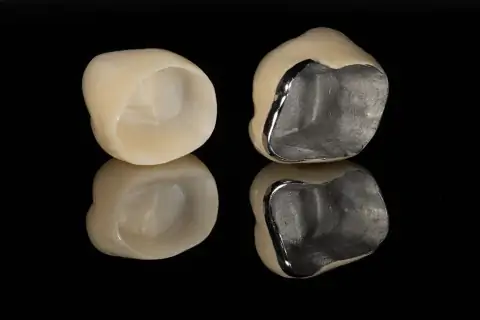
Full Gold Crown
These crowns are made entirely of a high-noble metal alloy, which includes a substantial percentage of gold, along with other precious metals like platinum and palladium.

High Noble Metal Crown
High noble metal crowns offer a balance between the benefits of gold and other precious metals, providing durability and biocompatibility.
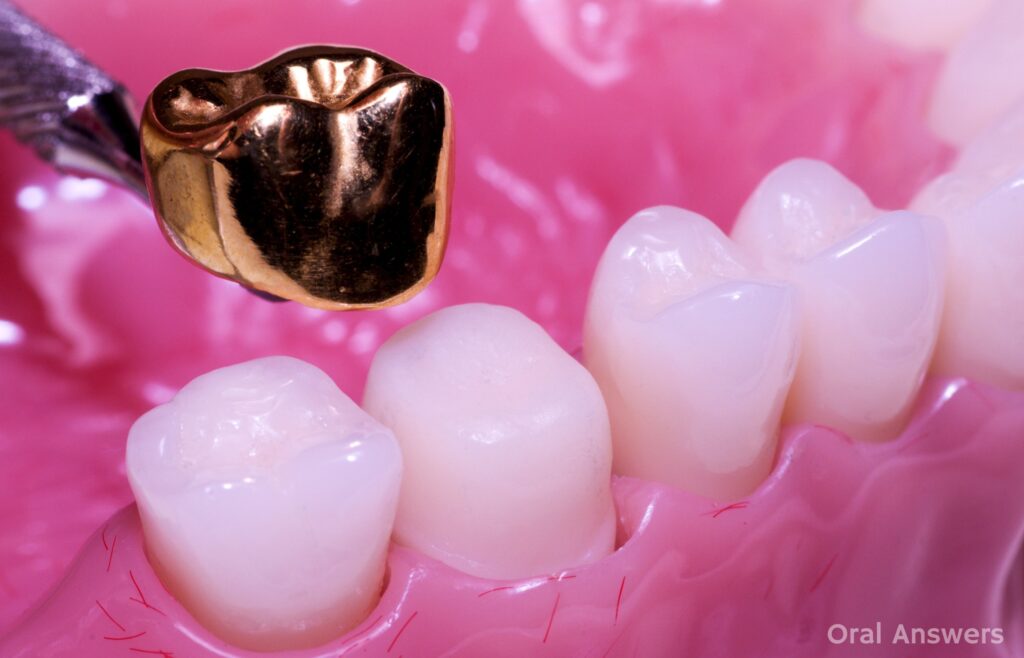
White Gold Crown
White gold crowns provide a more discreet option for patients who prefer a crown color that blends with the natural teeth. White gold crowns incorporate other metals like nickel or palladium to achieve a silver or white color

Porcelain-Fused-to-Metal
In this type, a thin layer of tooth-colored porcelain is fused to a gold substructure, combining the strength of metal with the aesthetic benefits of porcelain.
CAUSES OF GOLD DENTAL CROWN
Gold dental crowns are not a result of a specific cause but rather a dental treatment option chosen by patients and dentists for various reasons. Gold dental crowns are used to restore damaged or weakened teeth and are considered one of the materials available for dental crowns.
Durability
Gold is known for its strength and durability. Gold crowns are less prone to wear and abrasion compared to other materials,
Biocompatibility
Gold is a biocompatible material, meaning it is well-tolerated by the body and has a low risk of causing allergic reactions or adverse tissue responses.
Longevity
With proper oral hygiene and regular dental care, gold crowns can last for many years.
Patient Preference
Some patients choose gold dental crowns for aesthetic reasons, appreciating the warm, traditional appearance of yellow gold.
GOLD DENTAL CROWN
Symptoms of Gold Dental Crown
- Sensitivity
- Discomfort or Pain
- Gum Irritation
- Bite Issues
- Allergic Reactions
- Looseness or Dislodgment
How To Take Care Missing Teeth
Taking care of your oral health, especially when you have missing teeth, is important to prevent complications and maintain overall well-being. Here are some tips on how to care for missing teeth:
Floss Regularly: Floss between your remaining natural teeth and around dental appliances to remove plaque and prevent gum disease. If you have dental bridges or implants, use floss threaders or interdental brushes for effective cleaning.
Use an Antiseptic Mouthwash: Rinse your mouth with an antiseptic or fluoride mouthwash to help control bacteria and maintain oral hygiene. Consult your dentist for recommendations based on your specific needs.
Visit Your Dentist Regularly: Schedule regular dental check-ups, even if you have missing teeth. Your dentist can monitor the health of your remaining teeth, assess your gum health, and address any concerns promptly.
Consider Dental Appliances If you have missing teeth, your dentist may recommend dental appliances such as bridges, dentures, or implants to restore function and aesthetics. Follow your dentist’s instructions for care and maintenance of these appliances.
FAQs
A gold dental filling is a dental restoration that uses a gold alloy to repair and restore a tooth that has been affected by decay or damage.
Some individuals choose gold fillings for their durability, longevity, and biocompatibility. Gold is known for its strength and resistance to wear, making it a suitable option for dental restorations.
Gold dental fillings are typically made of a high-noble metal alloy that includes a significant percentage of gold along with other precious metals like platinum and palladium
With proper oral hygiene and regular dental care, gold dental fillings can last for many years, often exceeding the lifespan of some other filling materials
Gold dental fillings do not require special care beyond routine oral hygiene practices, such as regular brushing, flossing, and dental check-ups.
Gold dental fillings can be noticeable due to their metallic color. However, some individuals appreciate the appearance of gold and do not mind the visibility.
Procedure
- Book Appoinment
- Arrive 15 minutes before your scheduled time to complete any required paperwork.
- Our friendly staff will welcome you and guide you through the check-in process.
- Oral Check-Up
The dentist will conduct a thorough oral examination, checking for cavities, gum health, and signs of oral issues. A dental hygienist will perform a professional cleaning to ensure optimal oral hygiene
- Perform Treatment
Our skilled and compassionate team is dedicated to providing top-notch treatments tailored to your oral health needs. Whether you require a routine filling, a dental extraction, or more advanced procedures.
why choose us
The Excellence, Innovation, Trust!
We commit to upholding the highest standards in our work, consistently pursuing outstanding performance and quality to exceed expectations. Embracing creativity and forward-thinking, we actively seek new ideas, methods, and solutions to drive positive change and stay ahead in a dynamic environment.We prioritize transparency, integrity, and reliability, cultivating trust in our relationships and partnerships through consistent and ethical behavior. By combining a commitment to excellence with a culture of innovation and trust, we create a collaborative environment that encourages growth, creativity, and shared success.
Expertise
Our dental clinic boasts a team of highly skilled and experienced professionals committed to delivering top-notch oral care.
Proven Results
With a track record of successful outcomes and satisfied patients, choosing our dental clinic ensures you receive the quality care you deserve
Advanced Technology
We leverage cutting-edge dental technologies for precise diagnostics, efficient treatments, and enhanced patient comfort.
Comprehensive Services
From routine check-ups to specialized treatments, our clinic offers a wide range of dental services to address diverse oral health needs.
Meet the Team

Dr Hamza Niaz Khan
General Dentist , Cosmetic Dentist
Dr Abdullah Khan
Maxillofacial Surgeon
Zain ul Abideen
Chief Ceramist
Dr Esha Chaudhary
General Dentisttestimonials
What our customers
Say about us!

John Simin
Manager
Conquering Dental Anxiety
Lorem ipsum dolor sit amet consectetur. Mi metus ut sit ultricies montes felis adipiscing in.

John Simin
Manager
Heartfelt Care
Lorem ipsum dolor sit amet consectetur. Mi metus ut sit ultricies montes felis adipiscing in.

John Simin
Manager
Heartfelt Care
Lorem ipsum dolor sit amet consectetur. Mi metus ut sit ultricies montes felis adipiscing in.


